Policy
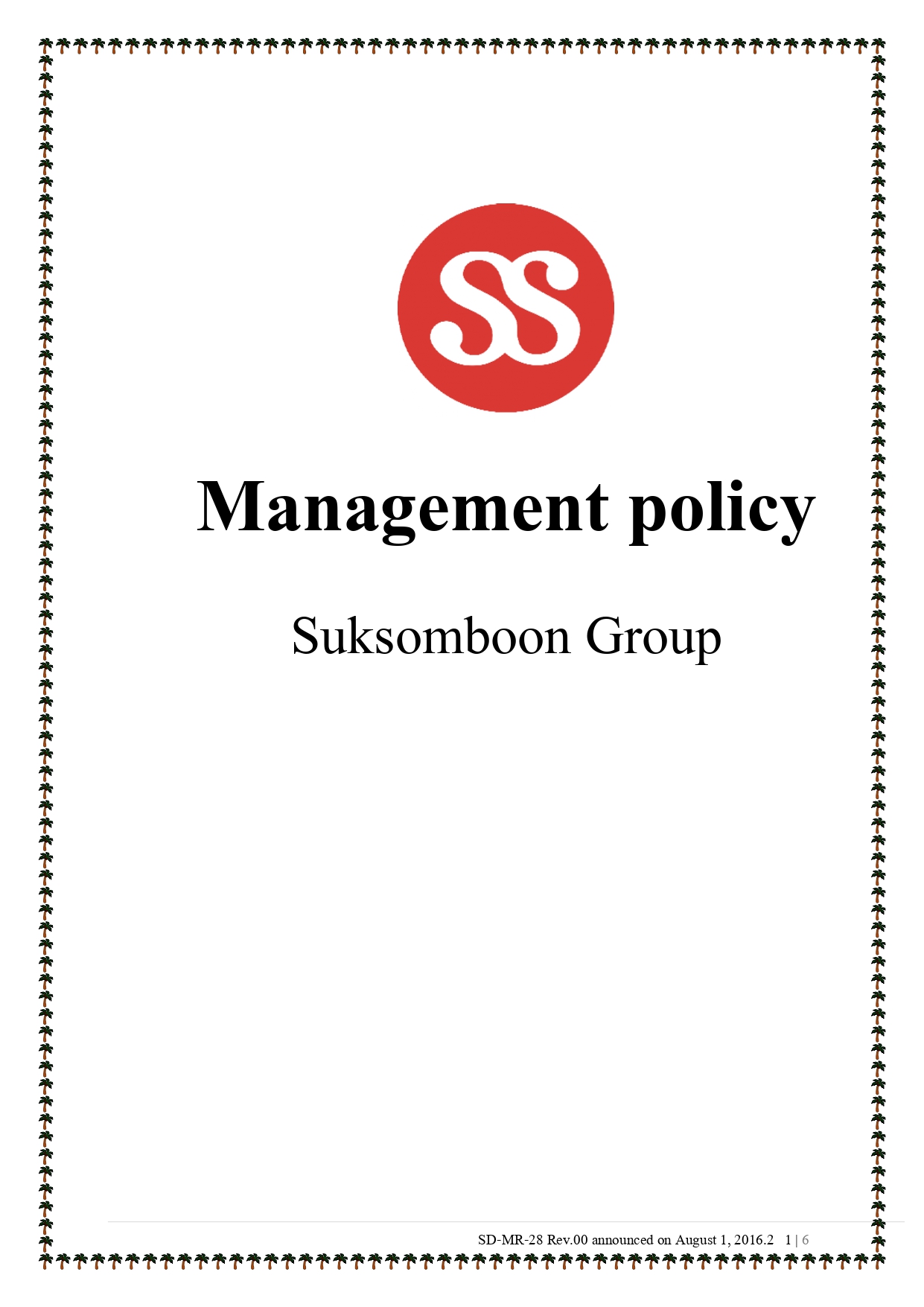
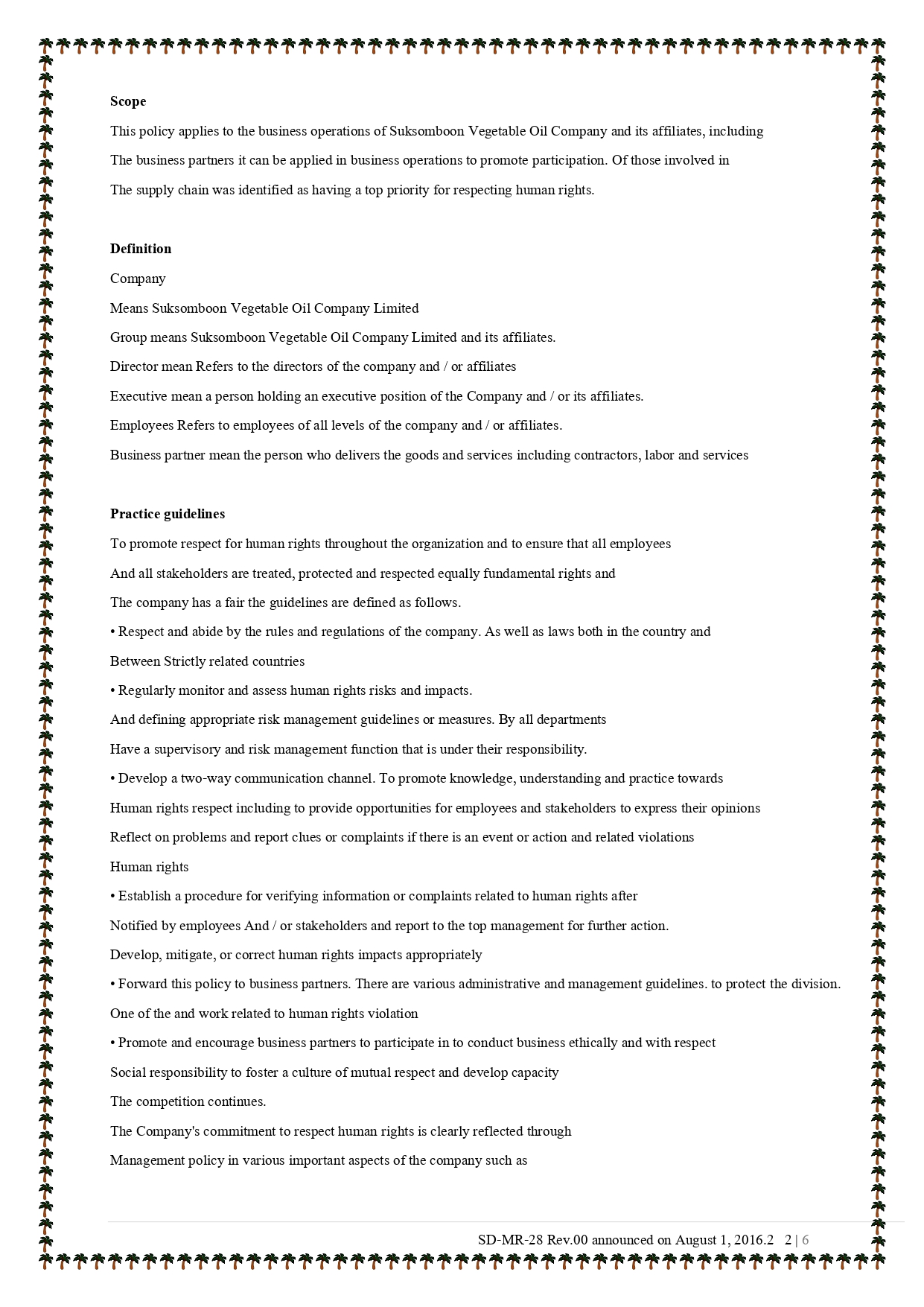
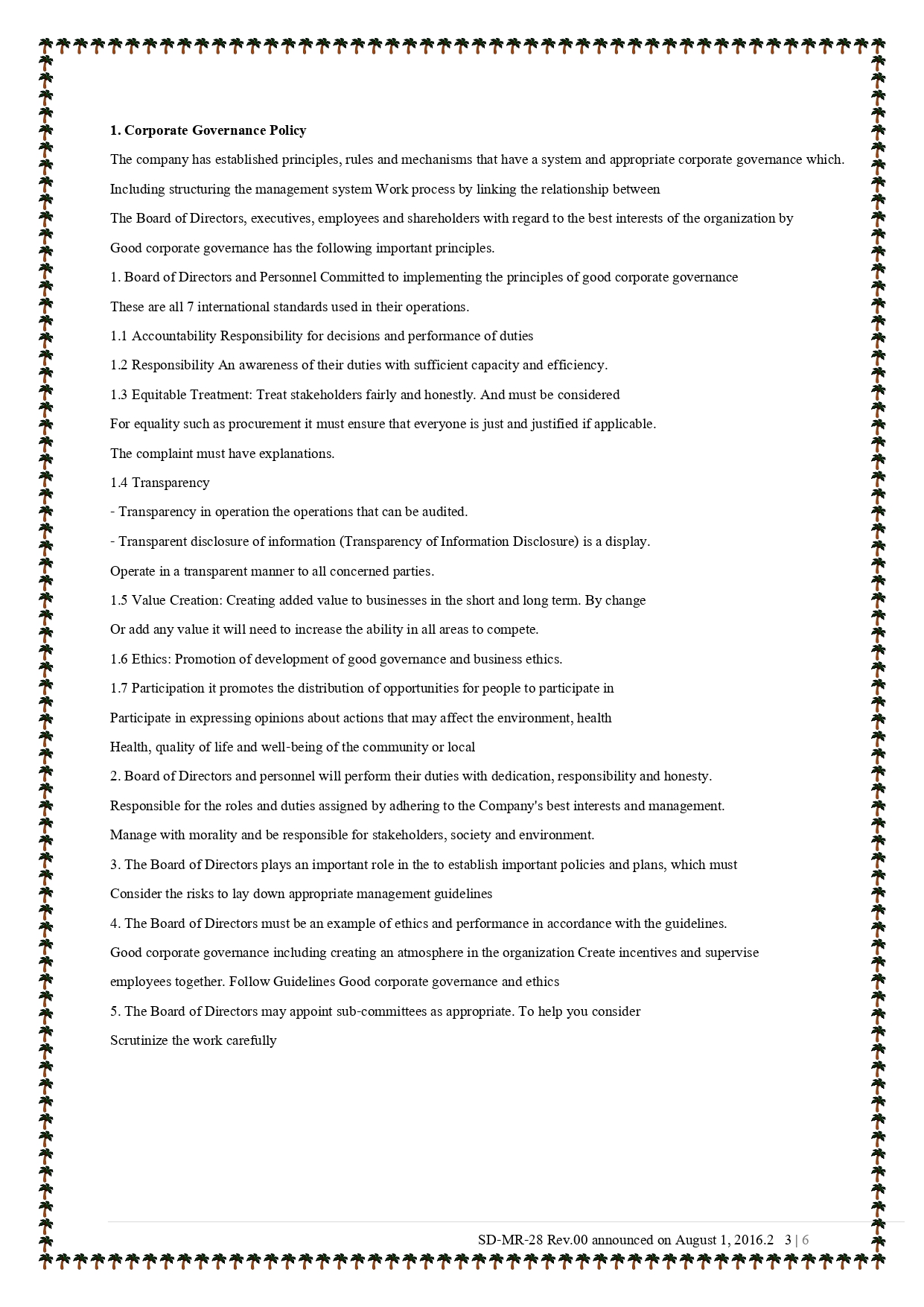
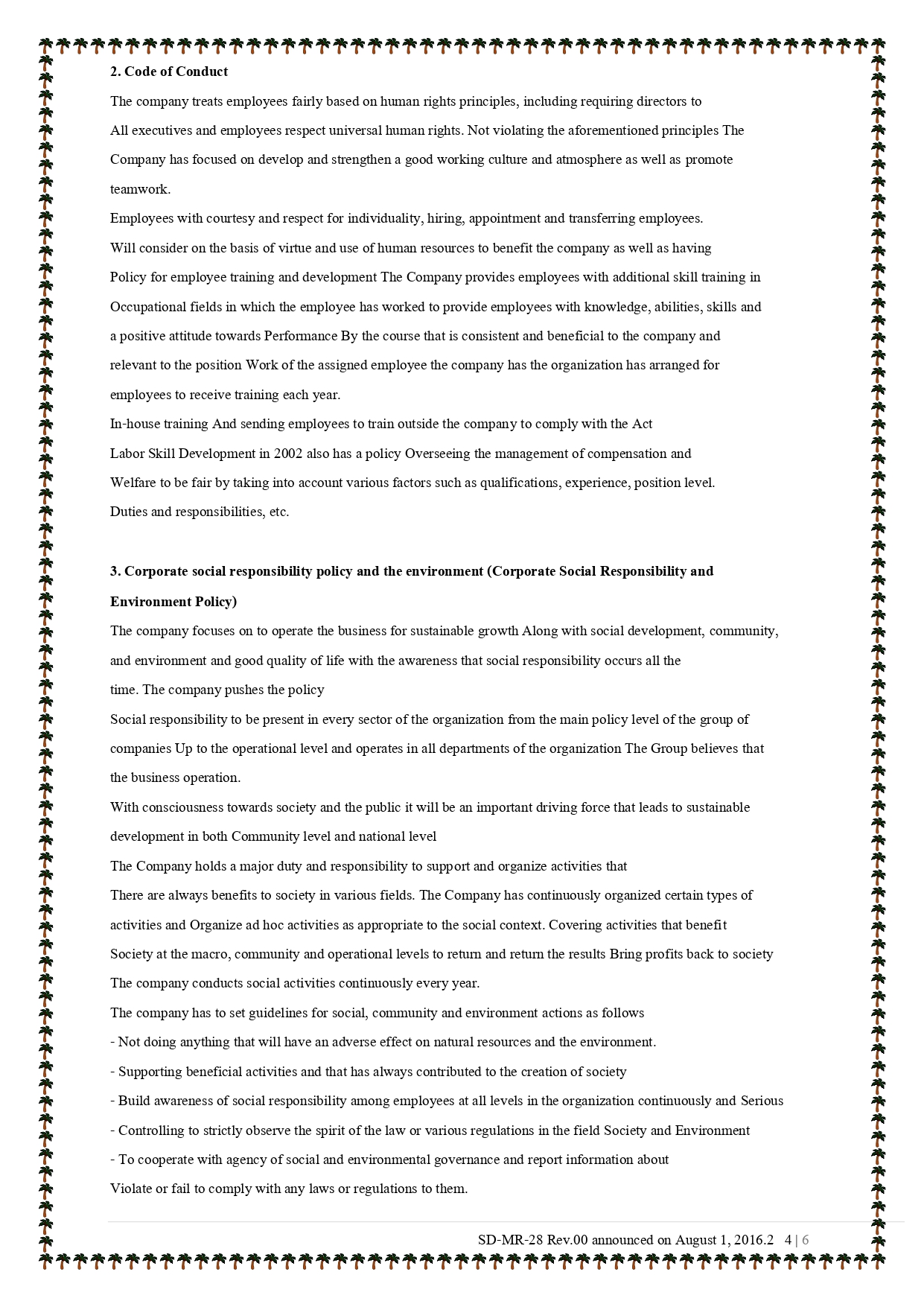
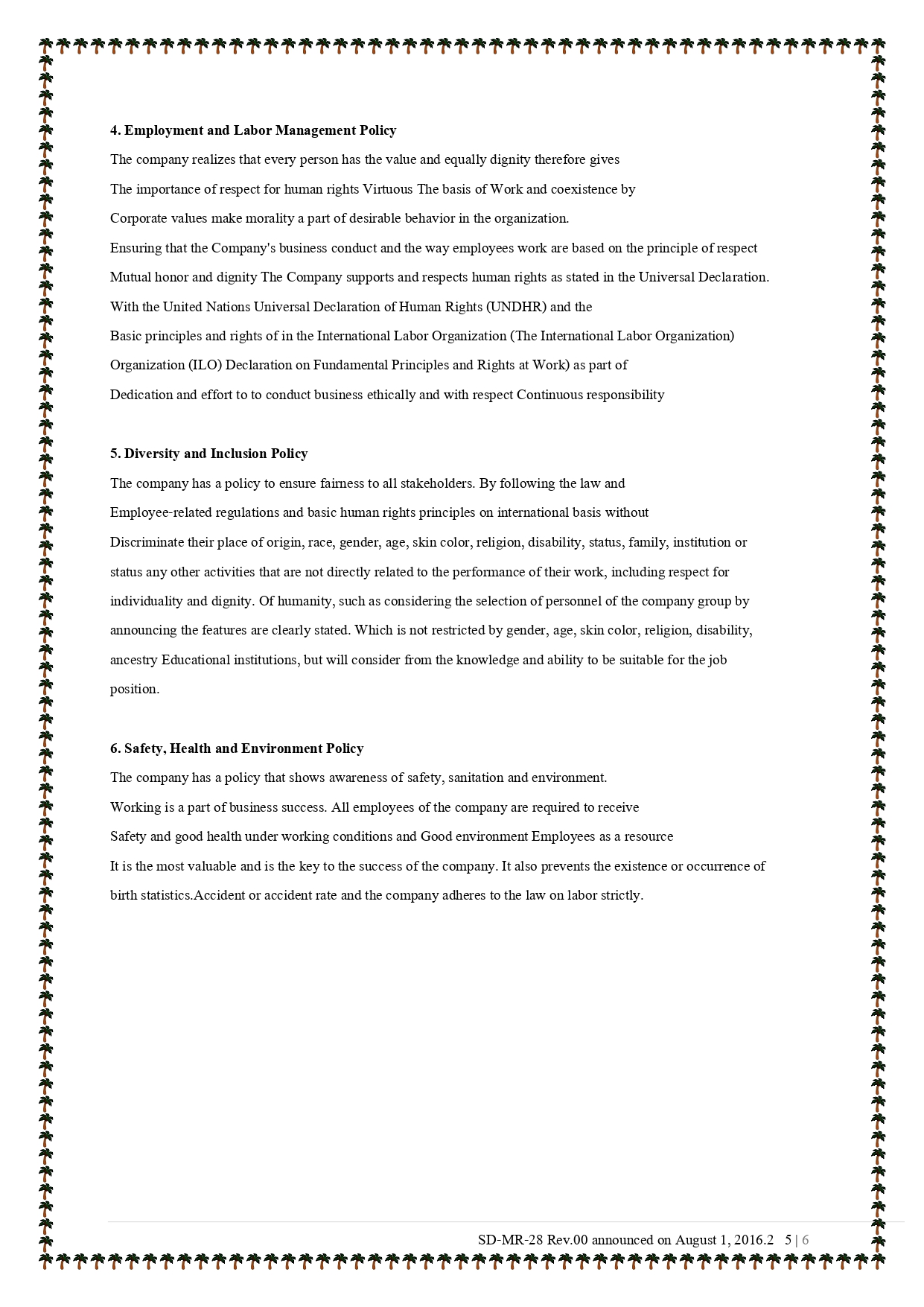
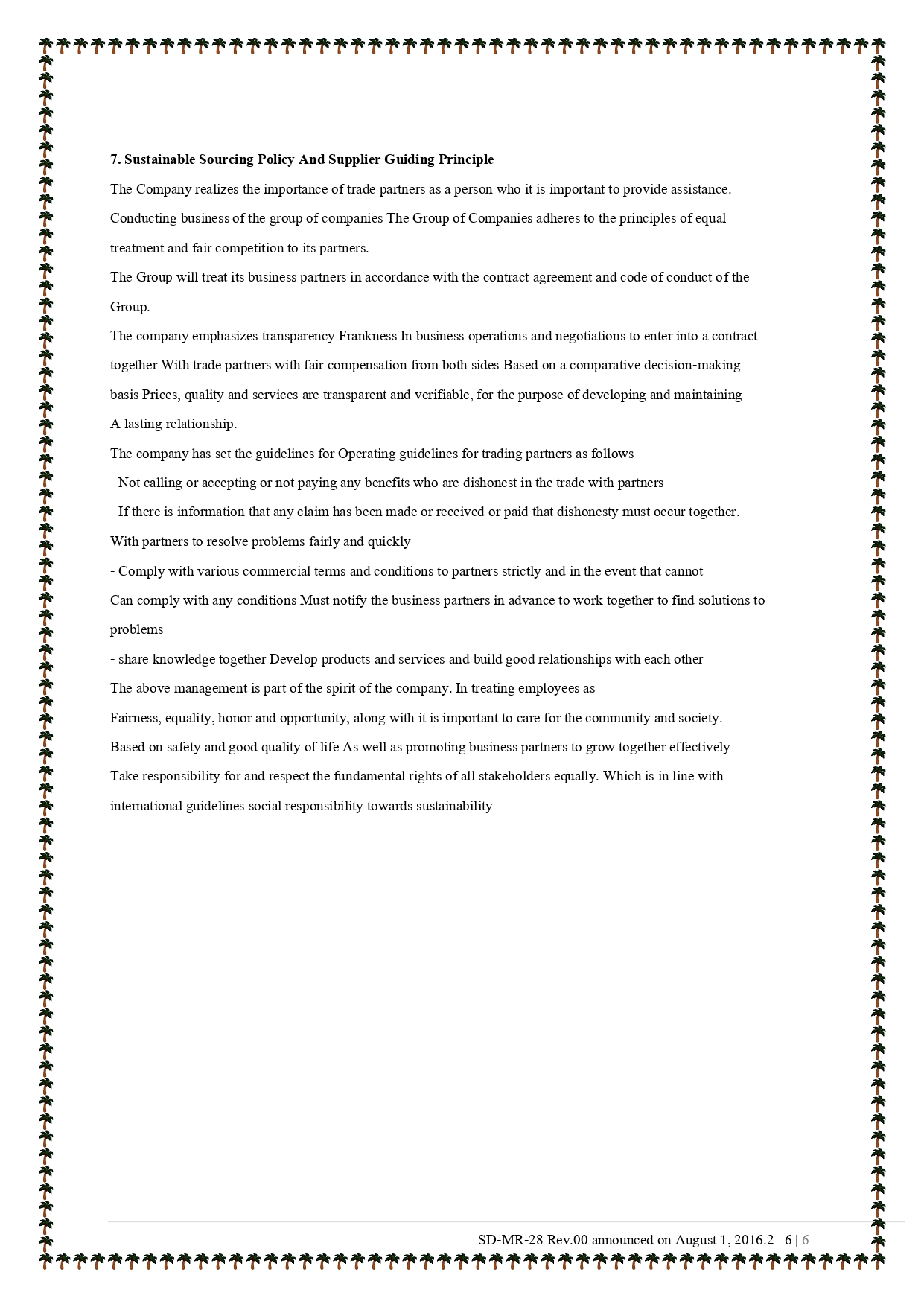





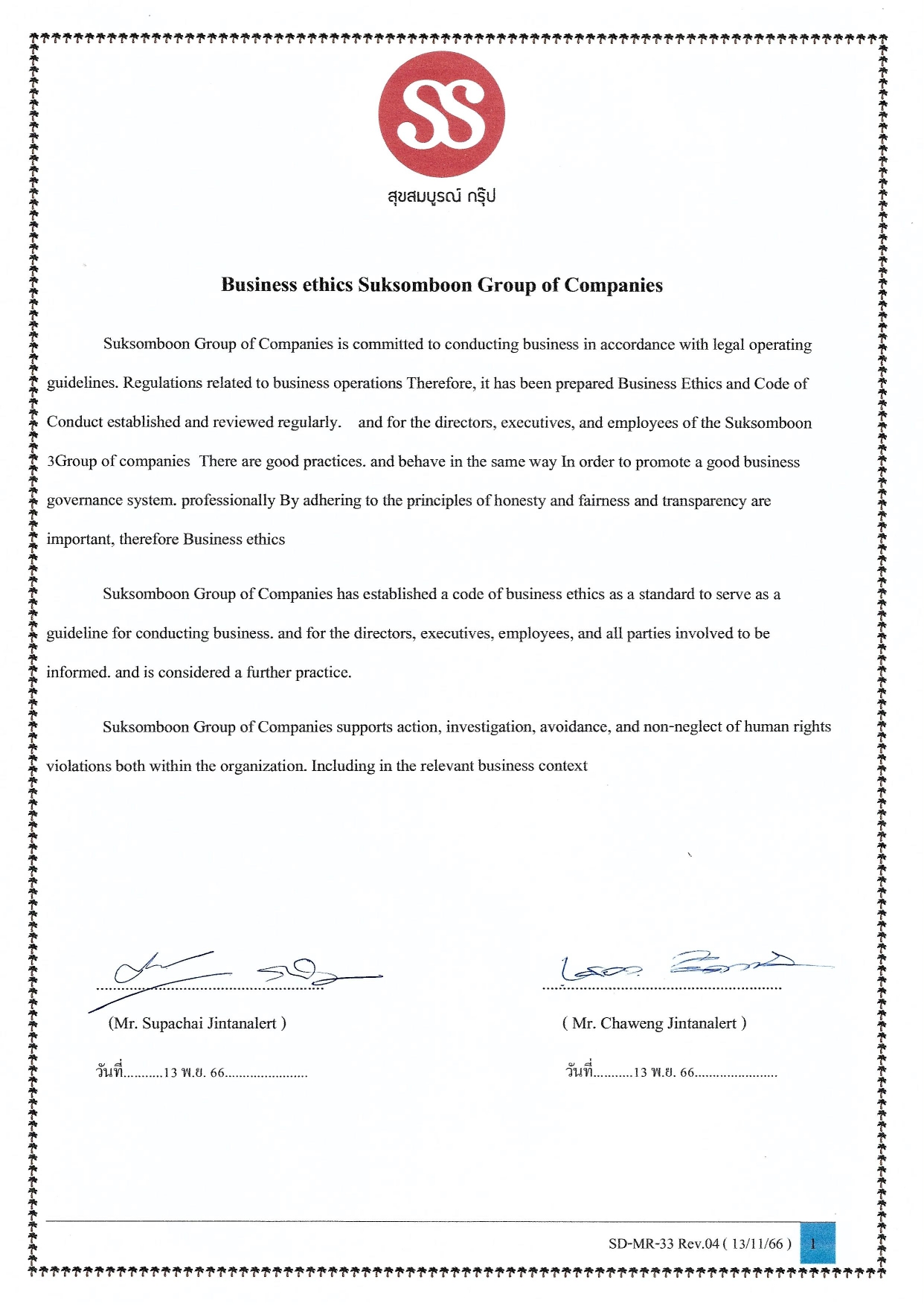
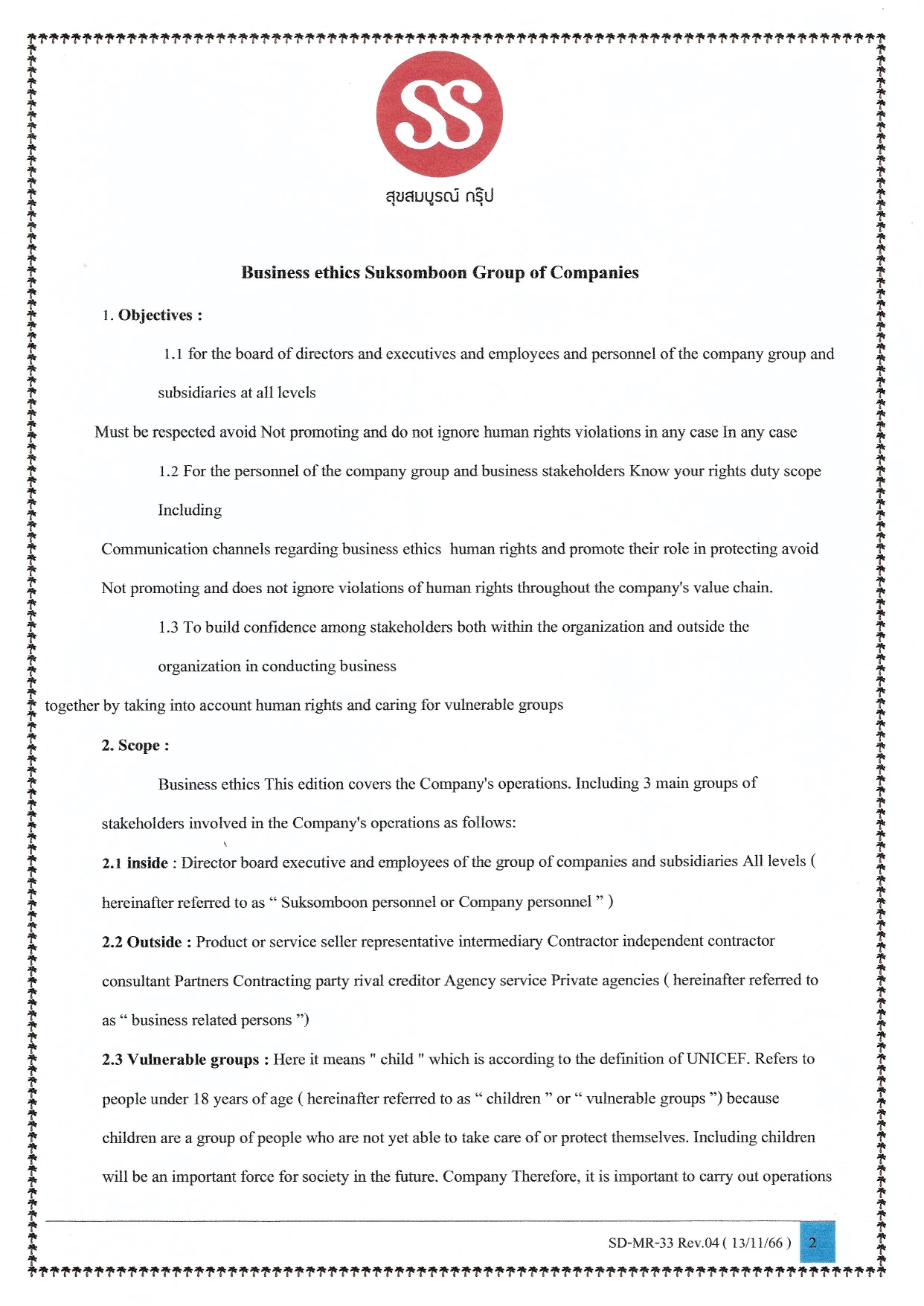
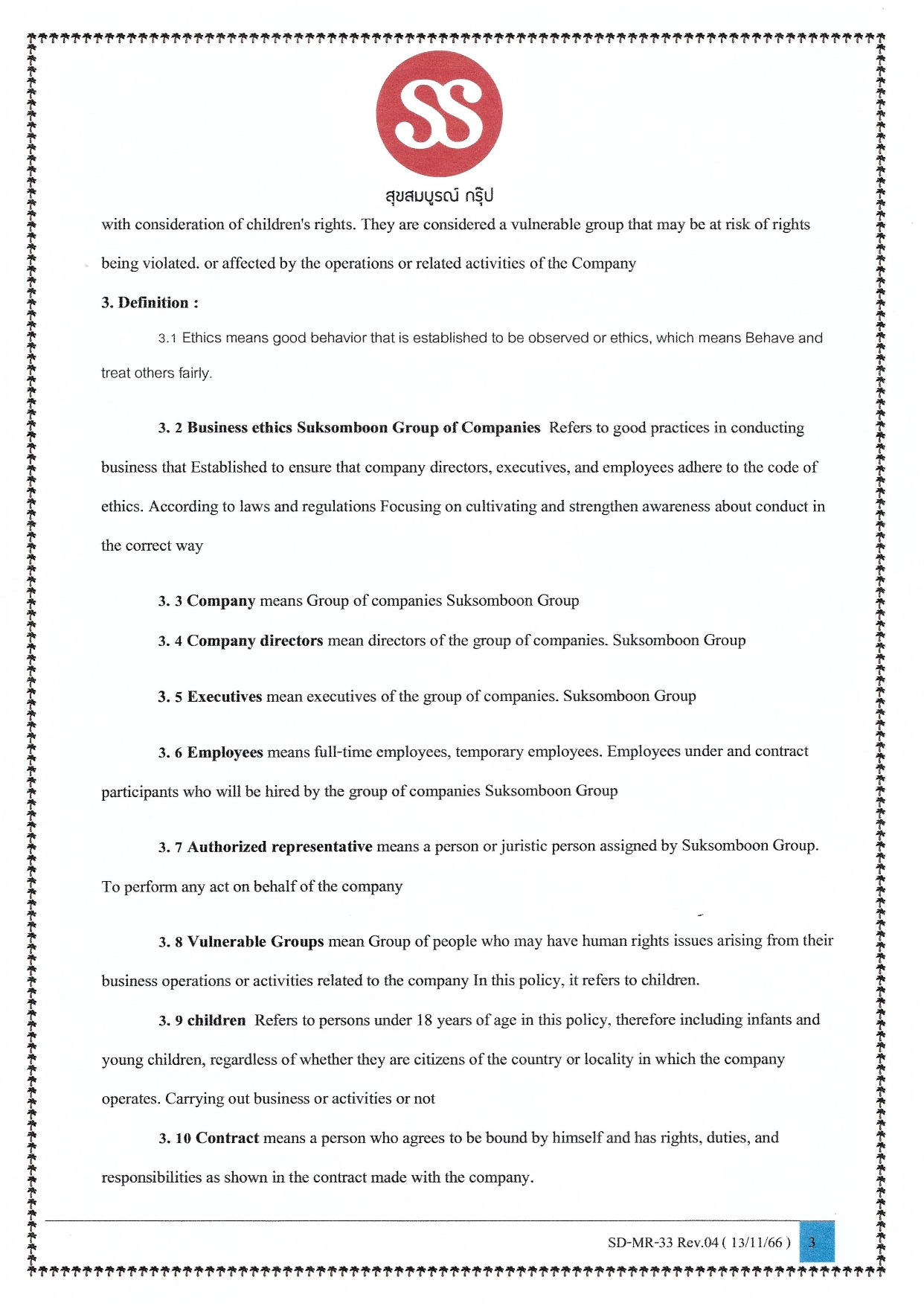
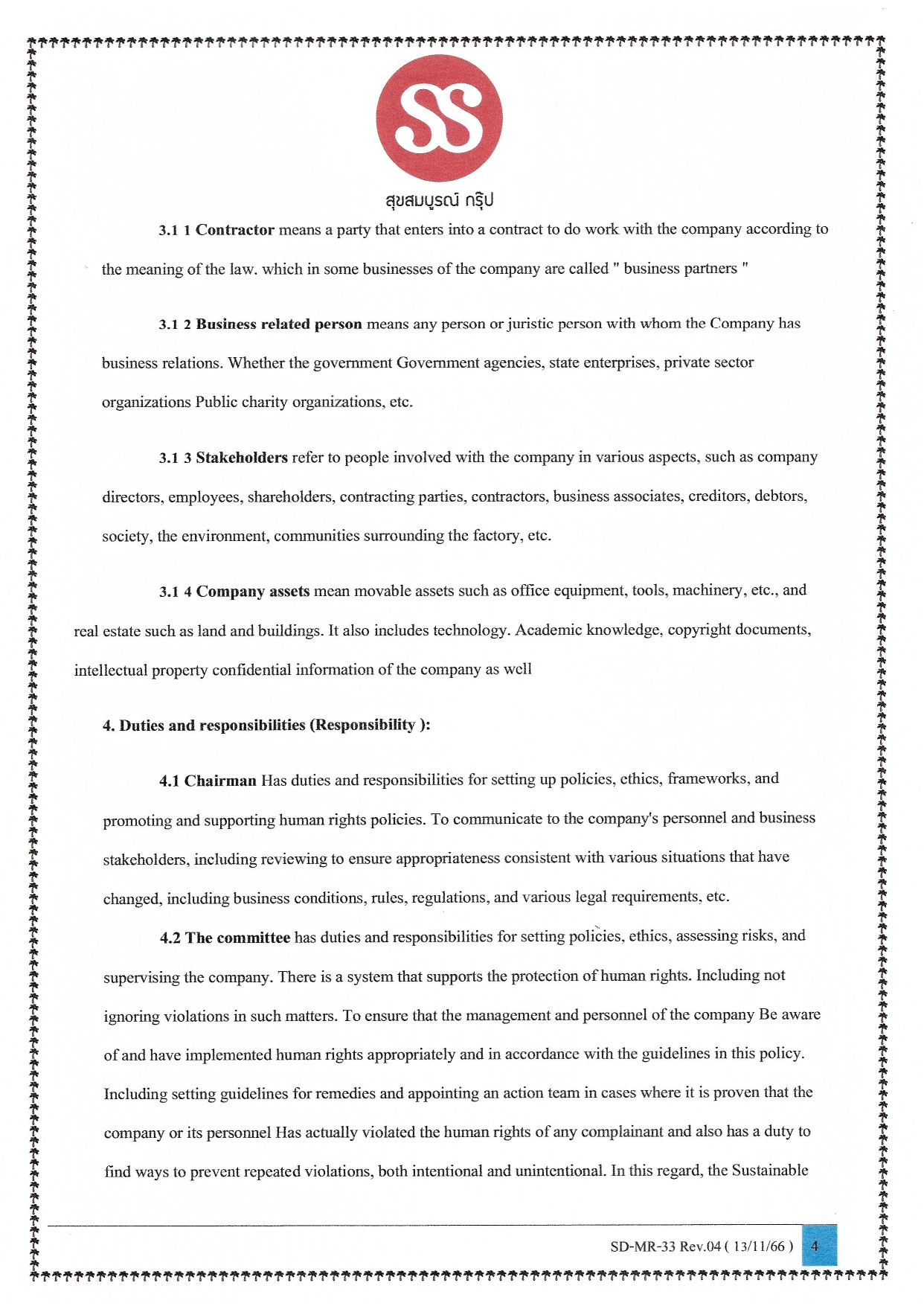
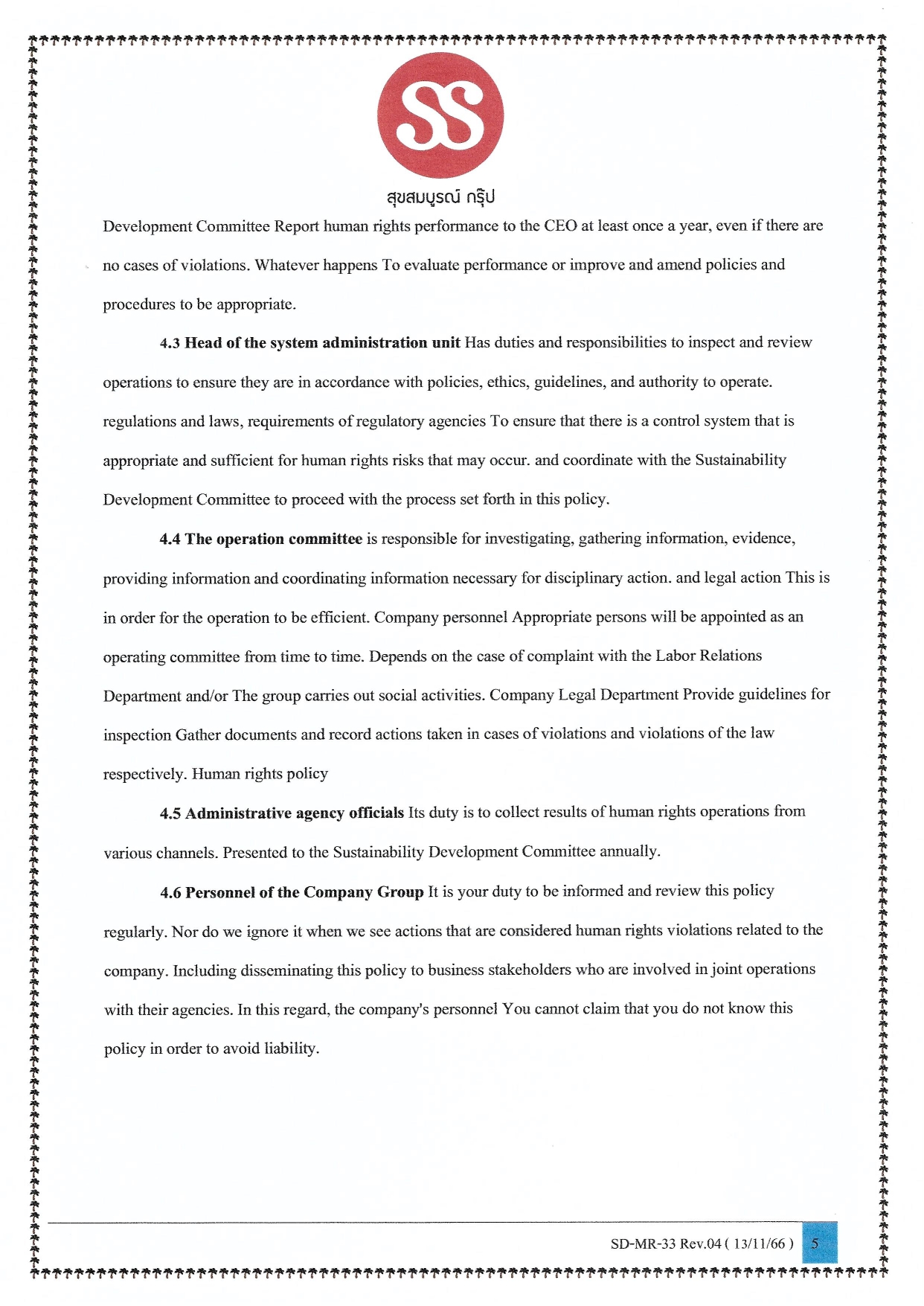
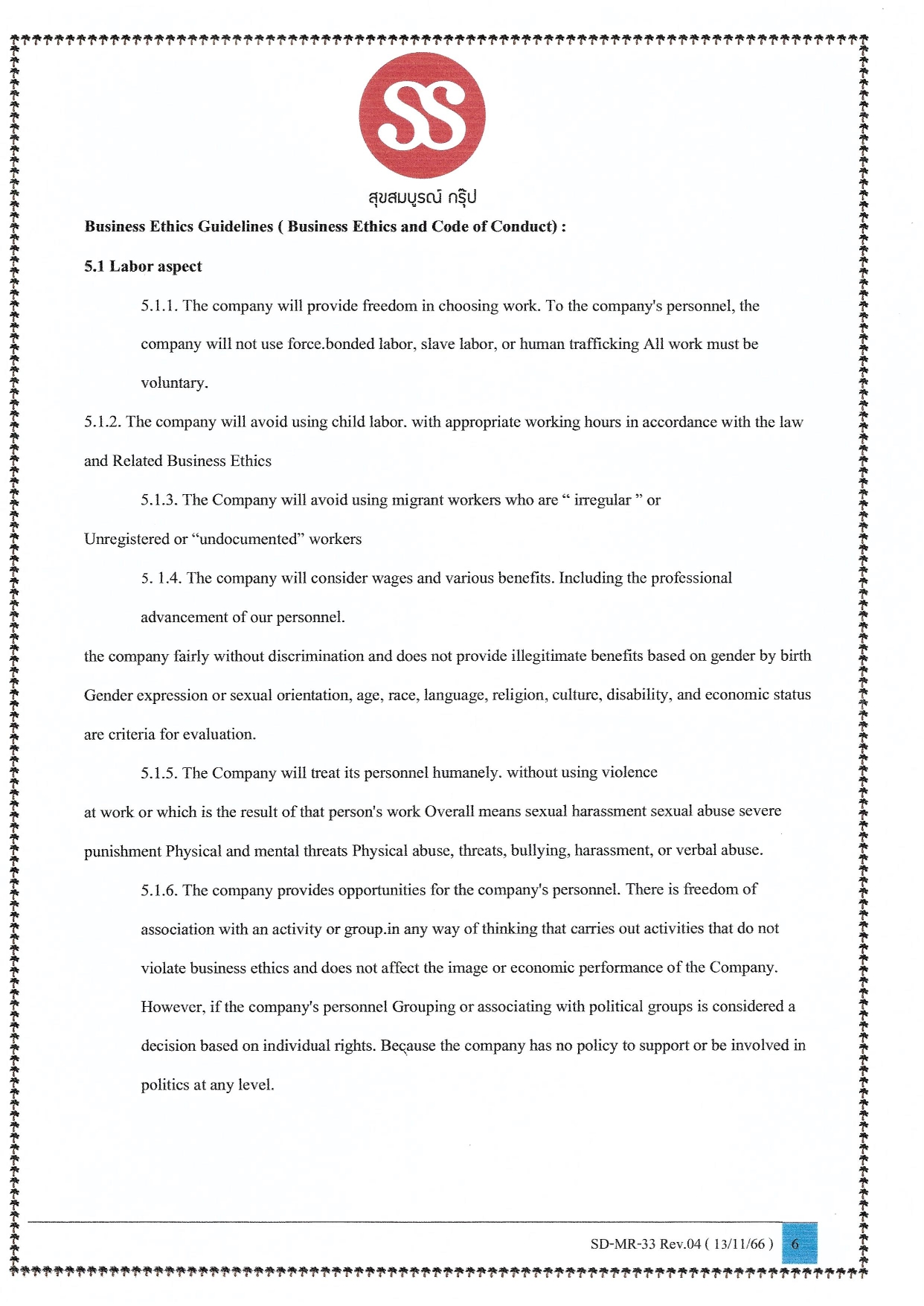
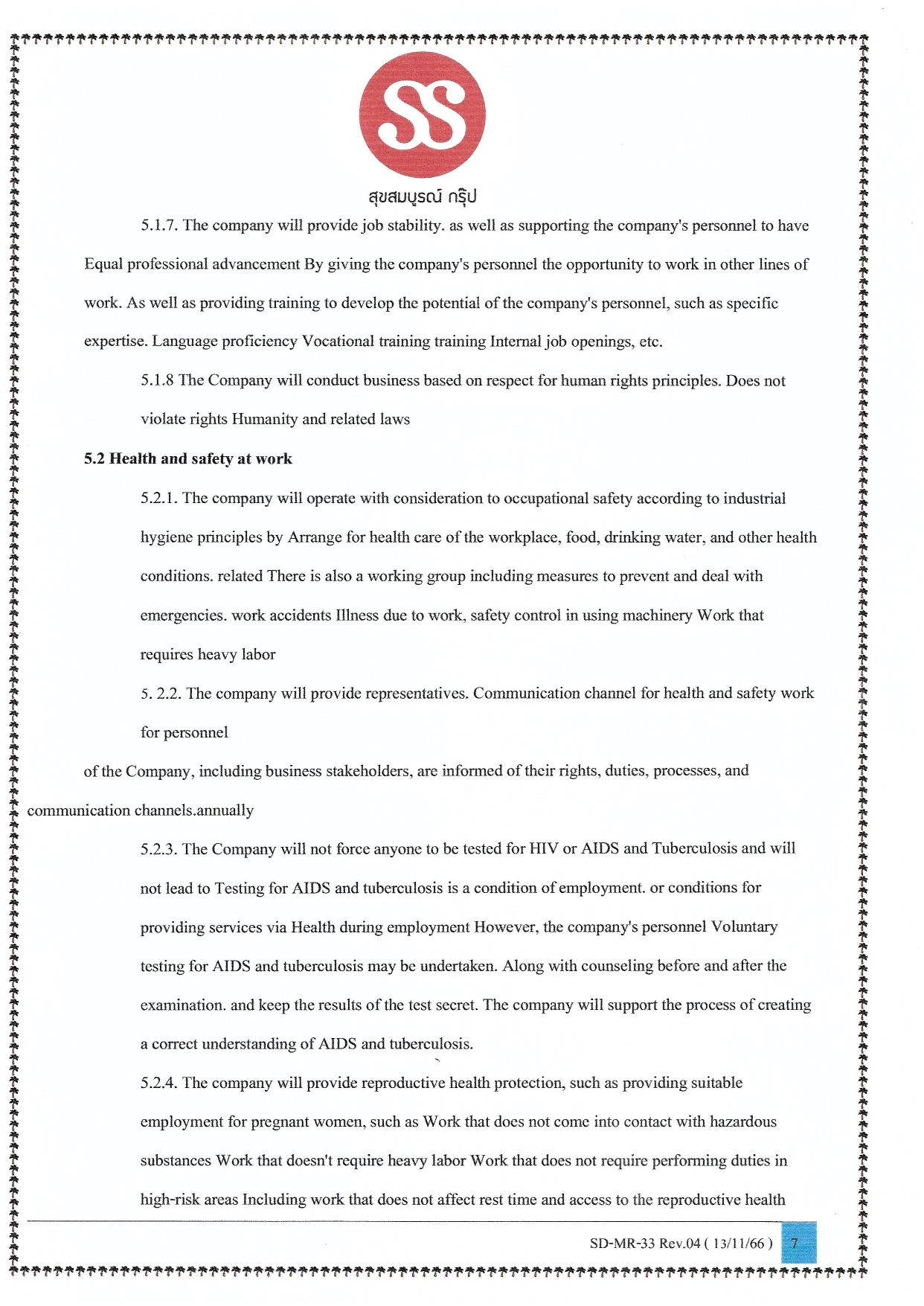
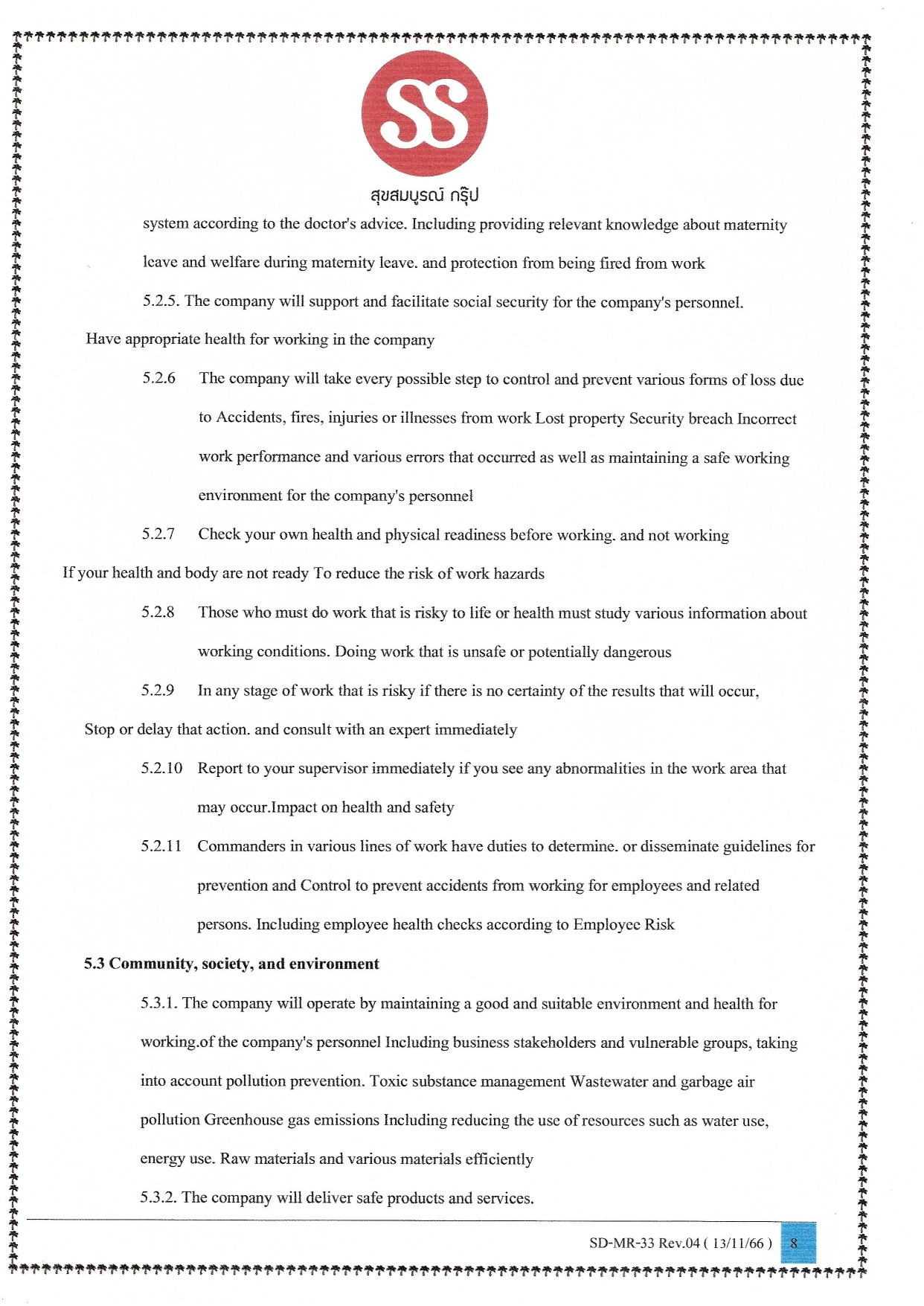
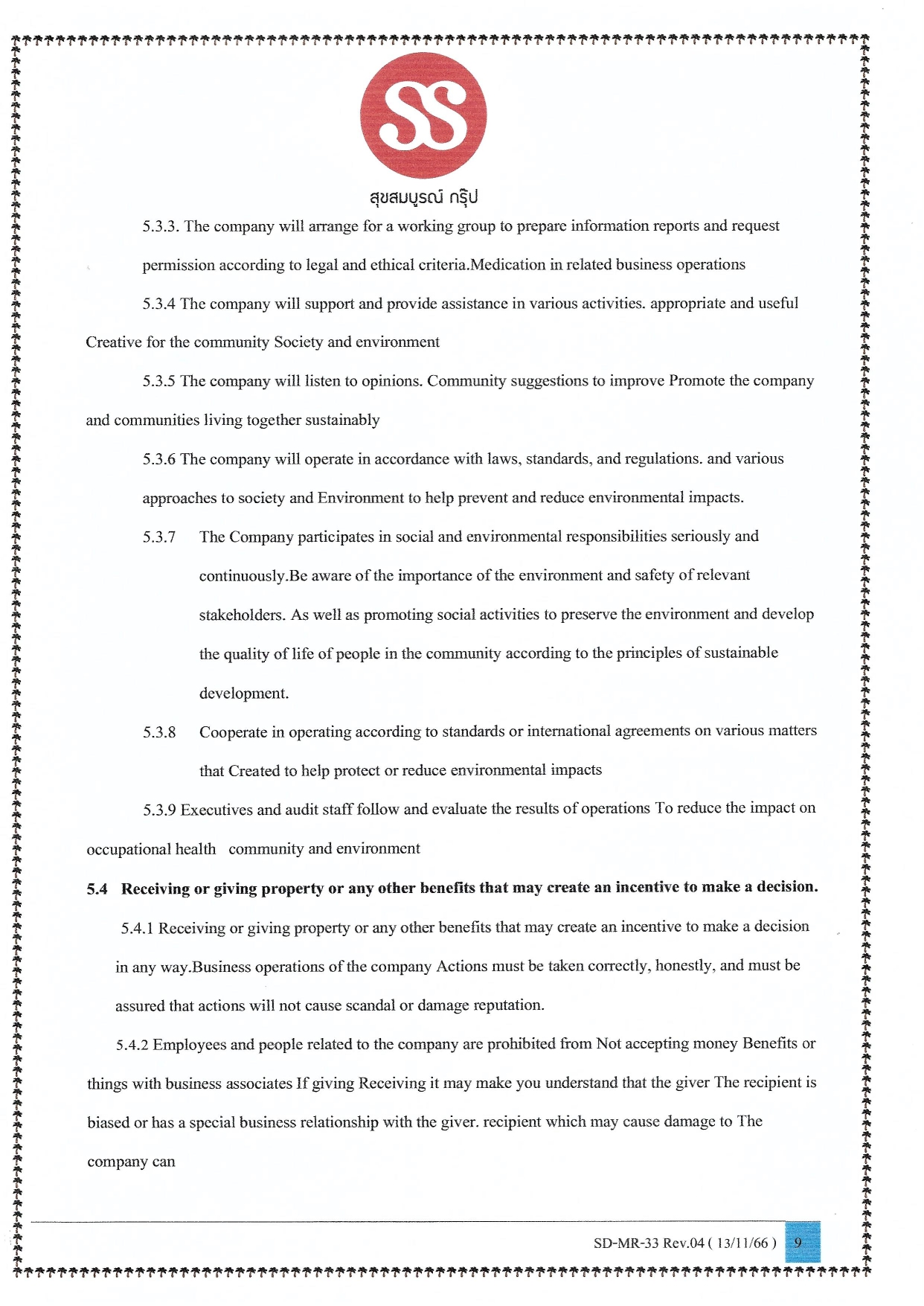
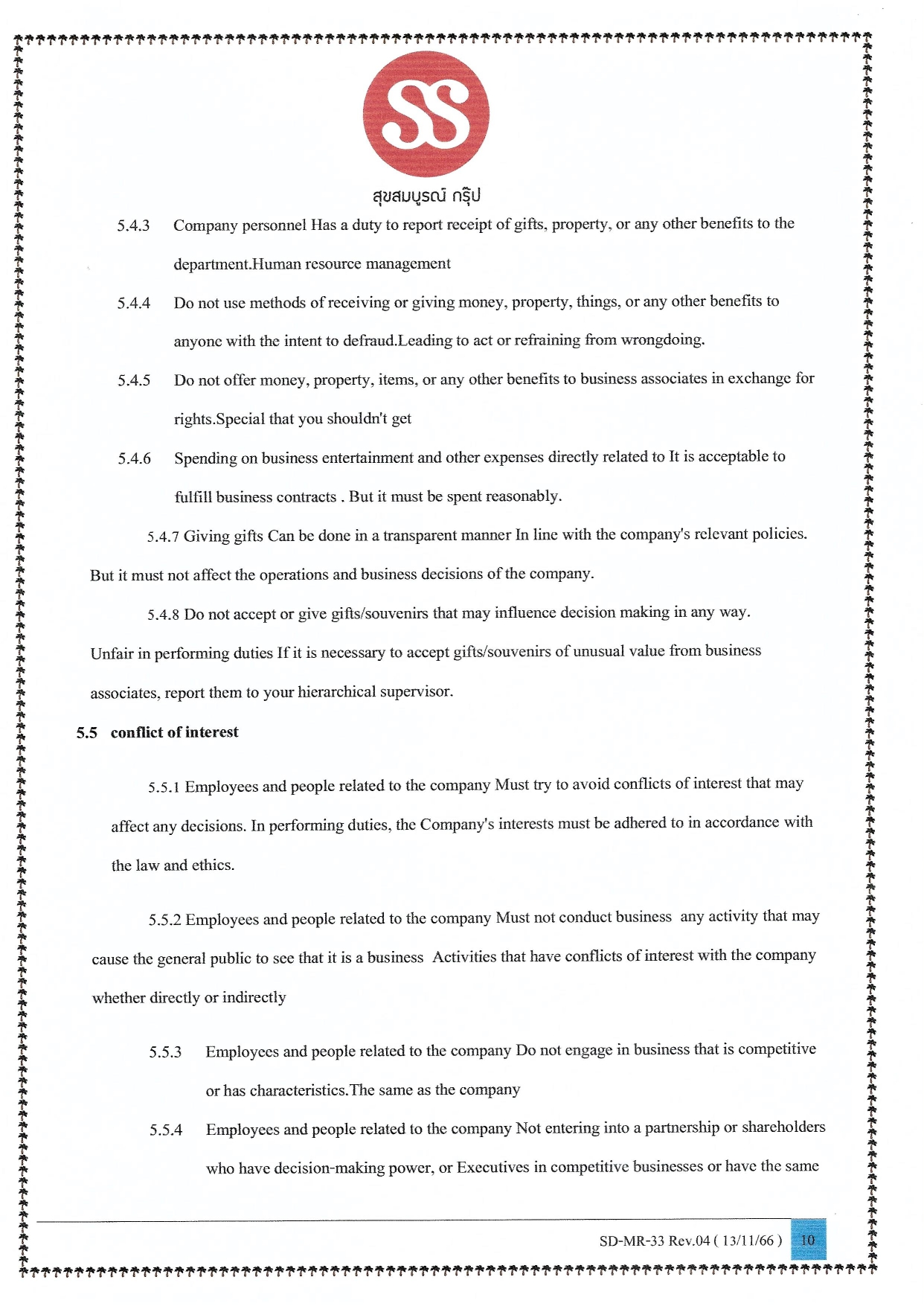
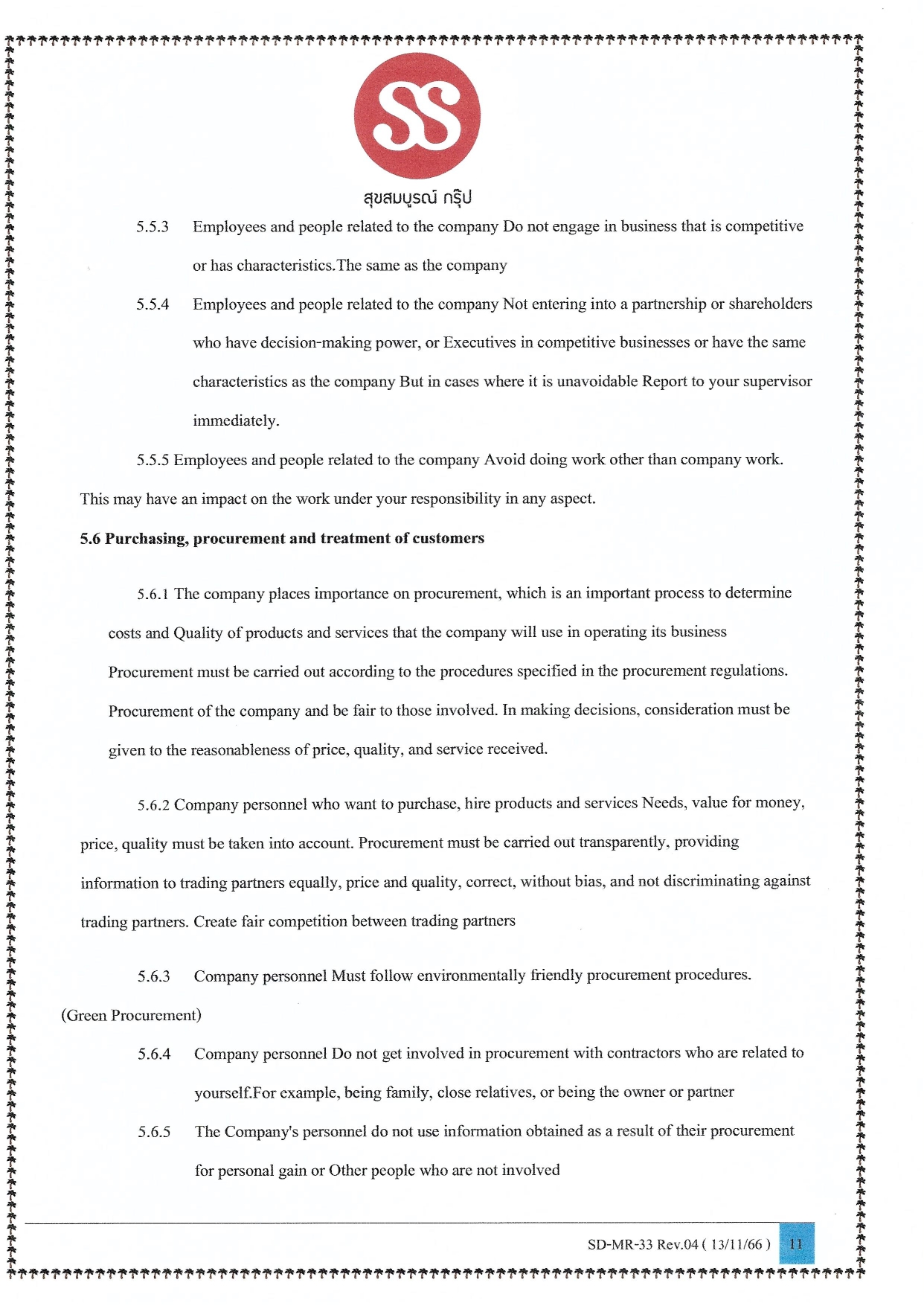
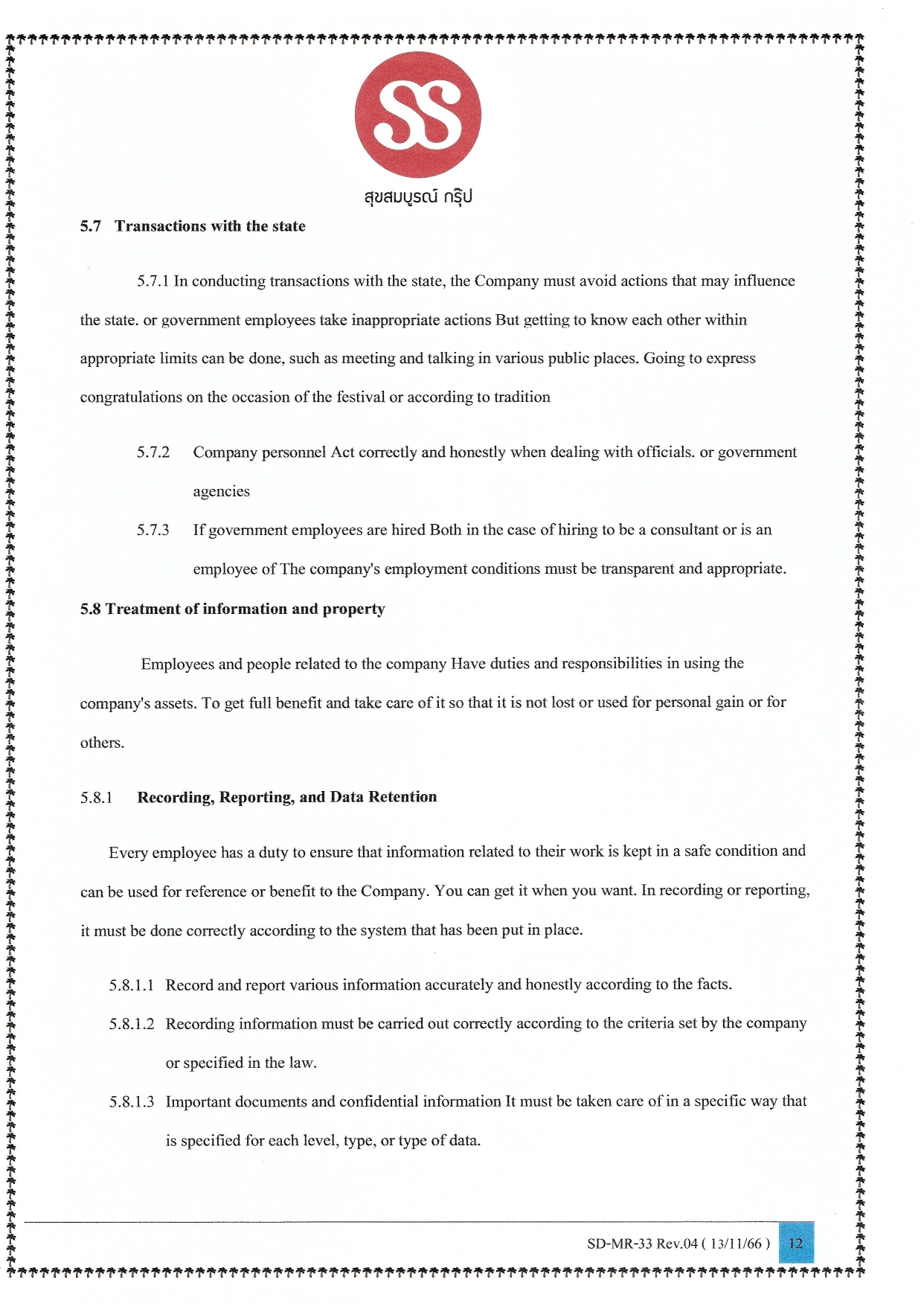
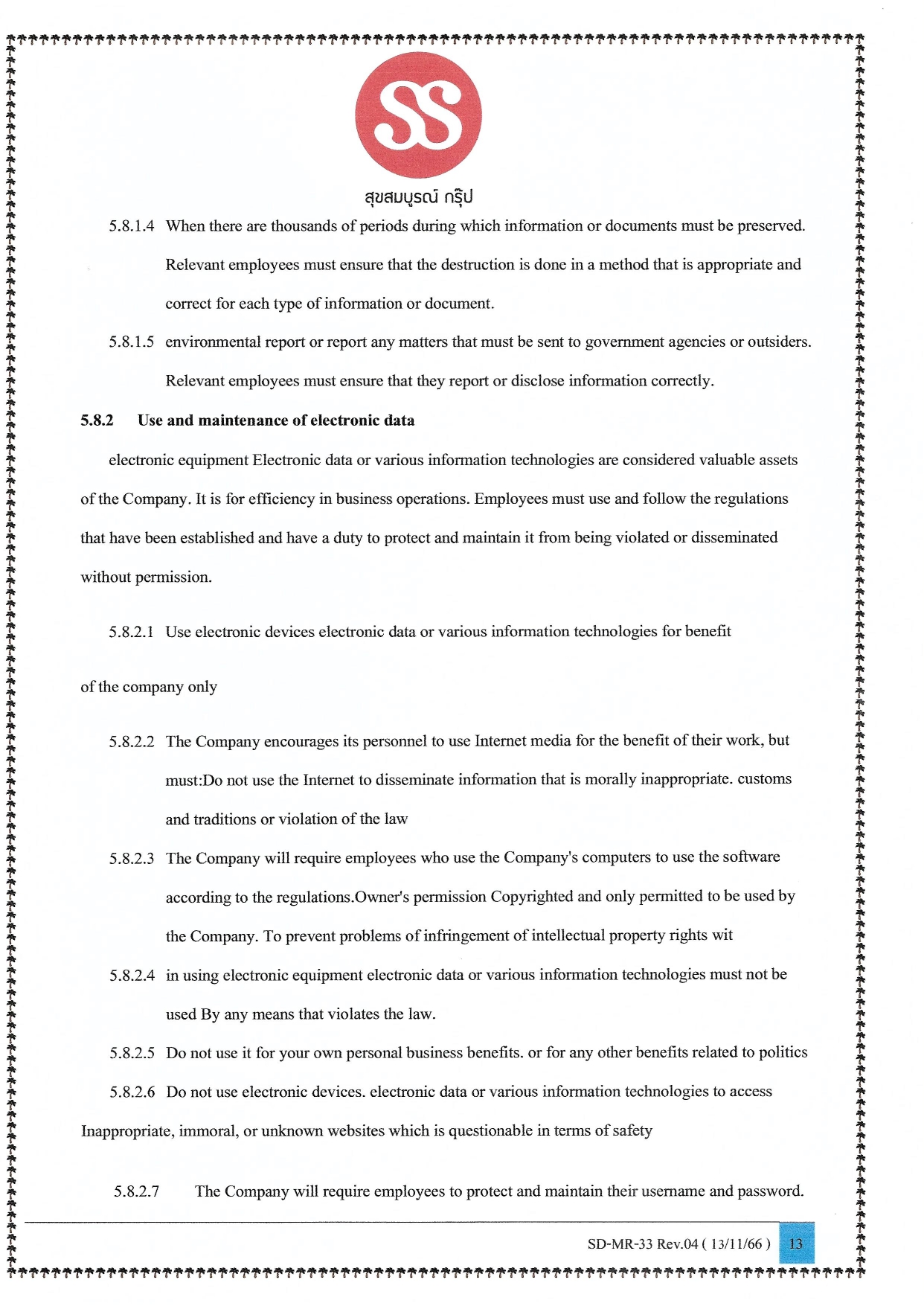
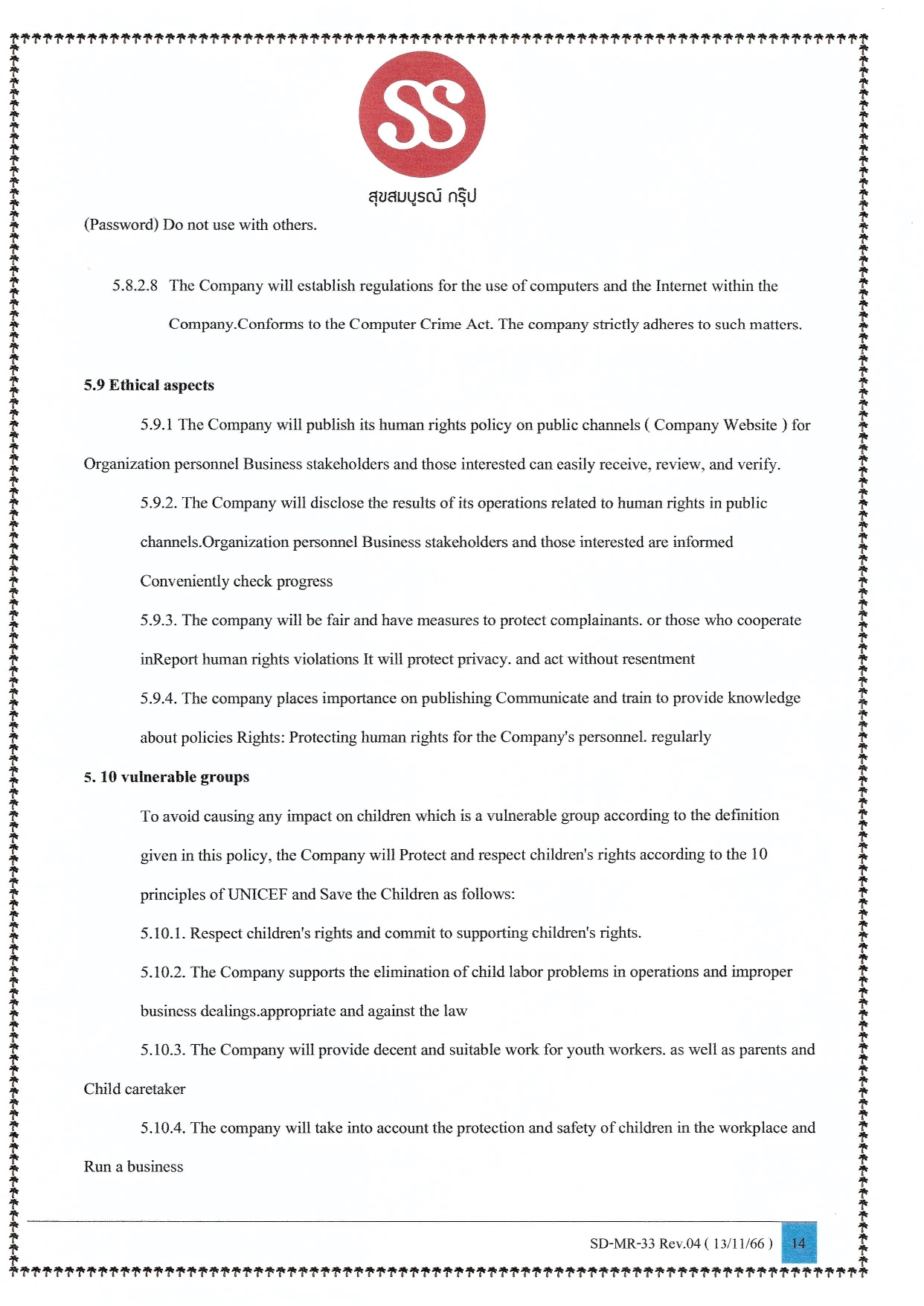
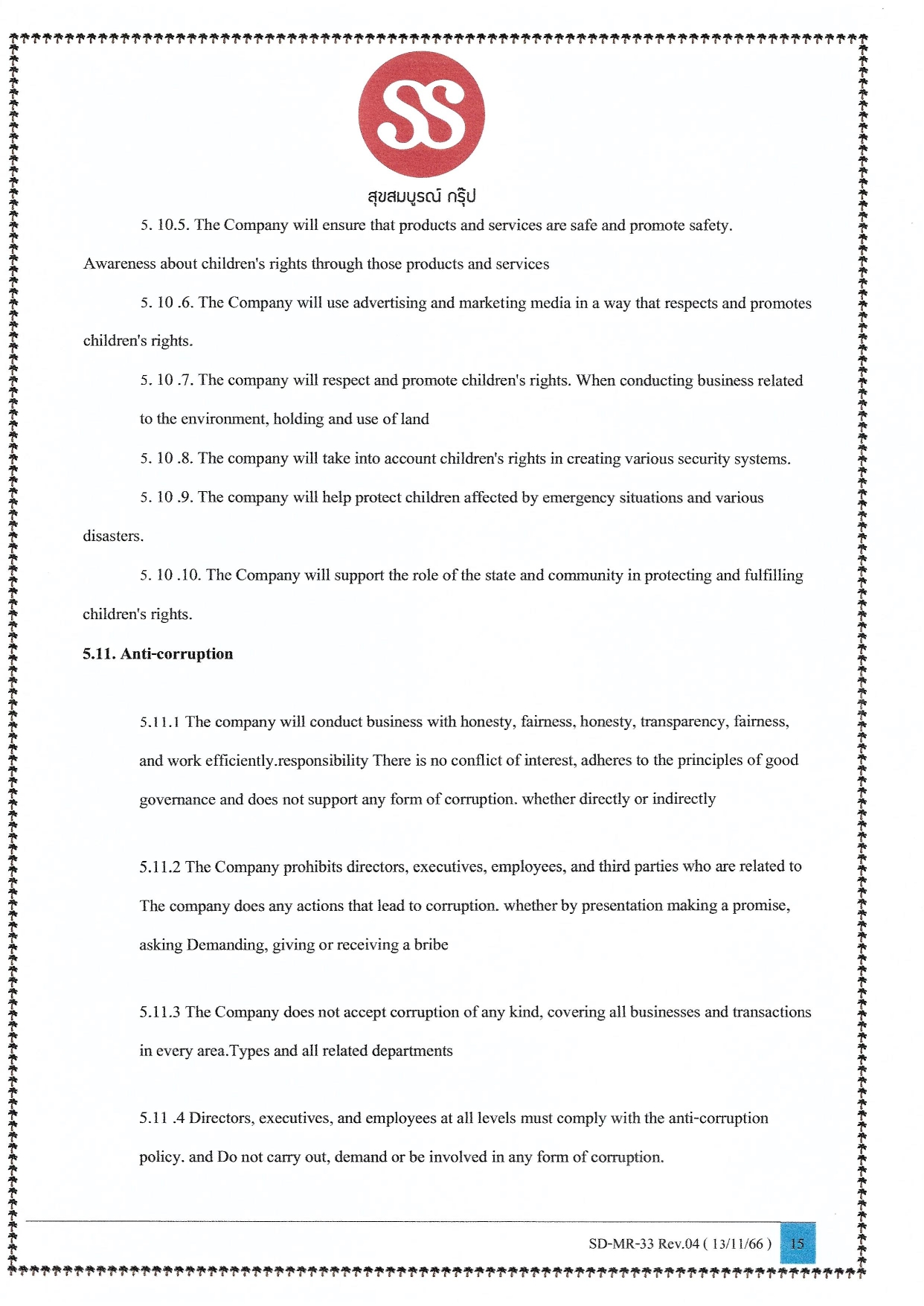
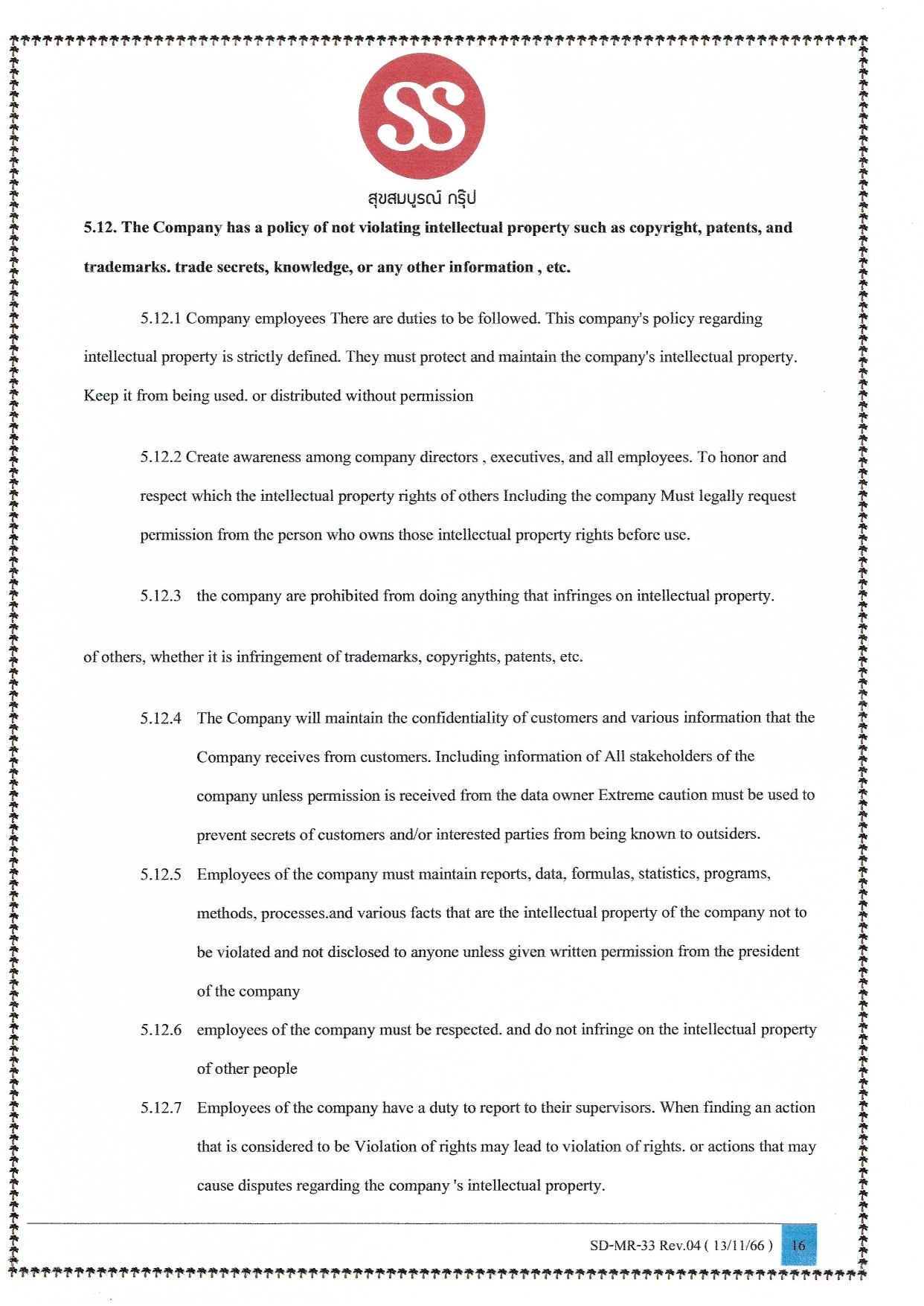
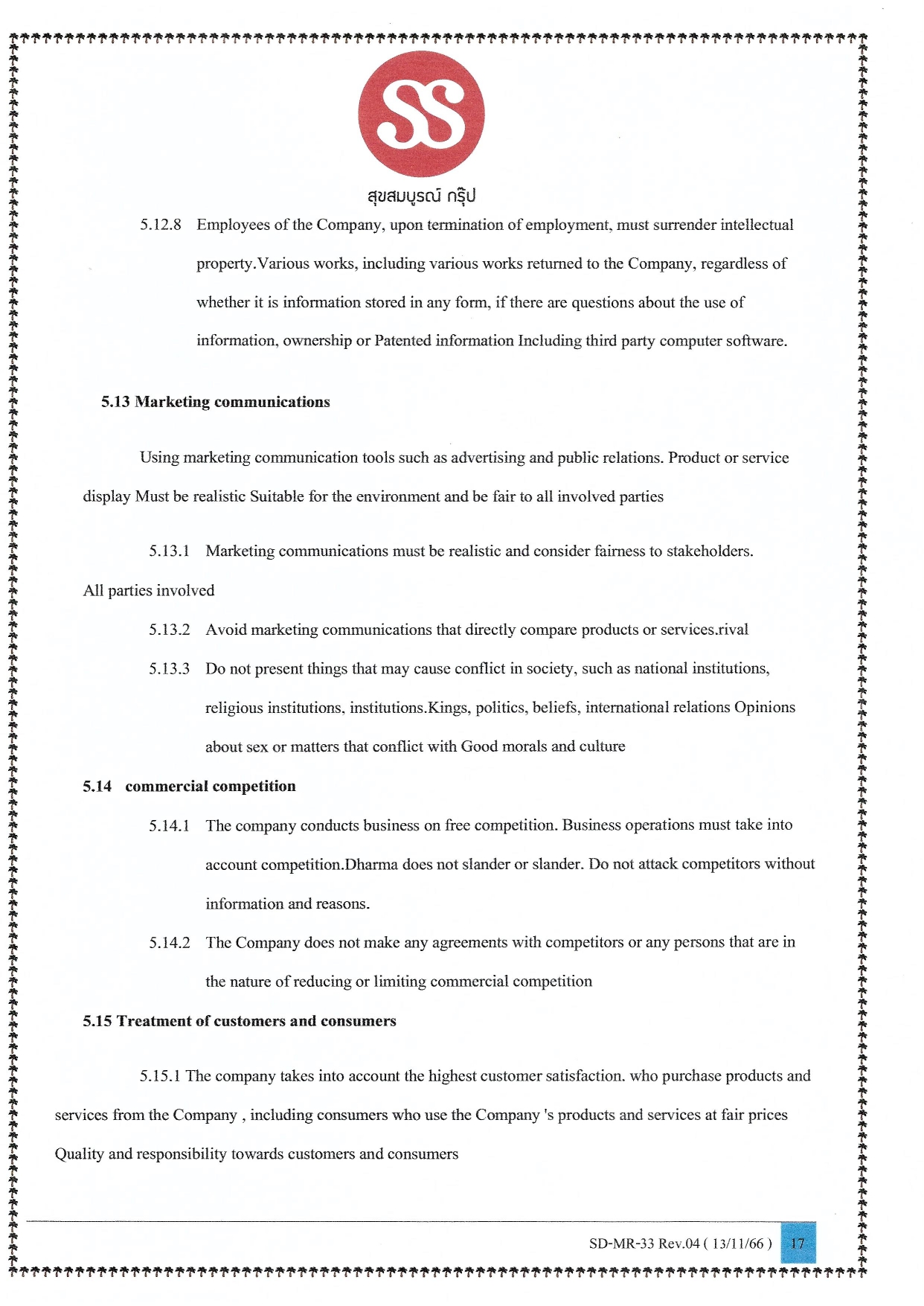
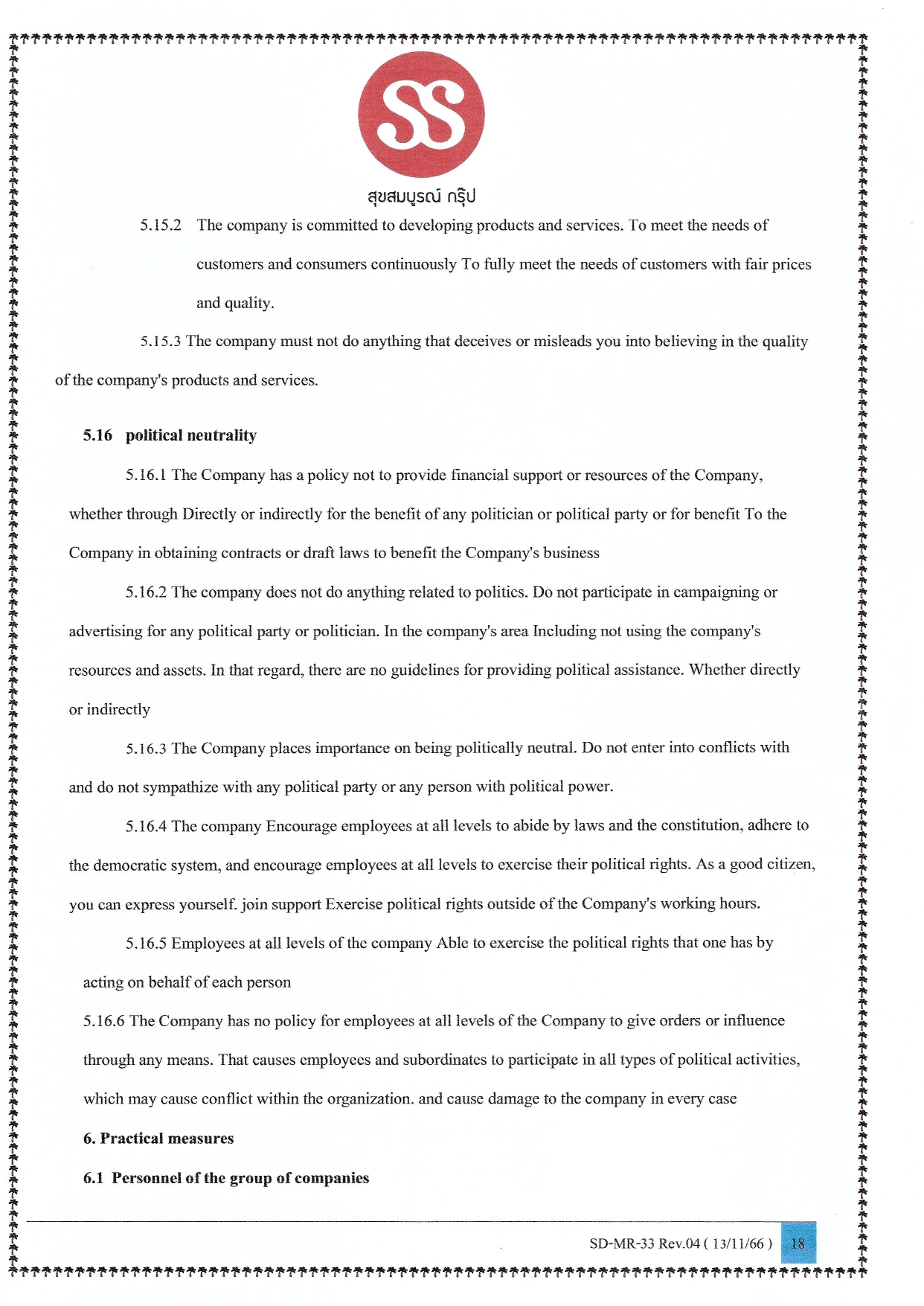
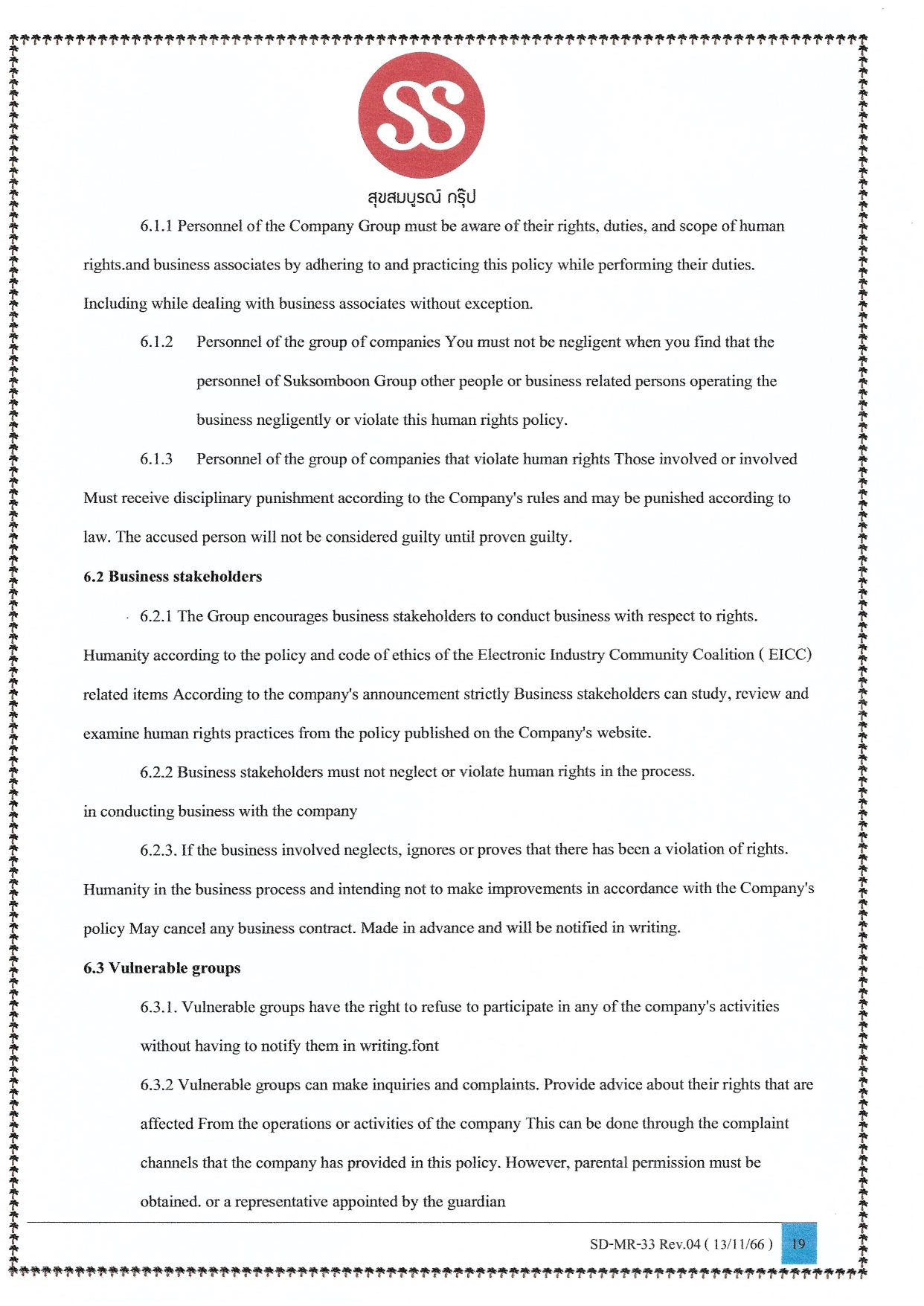
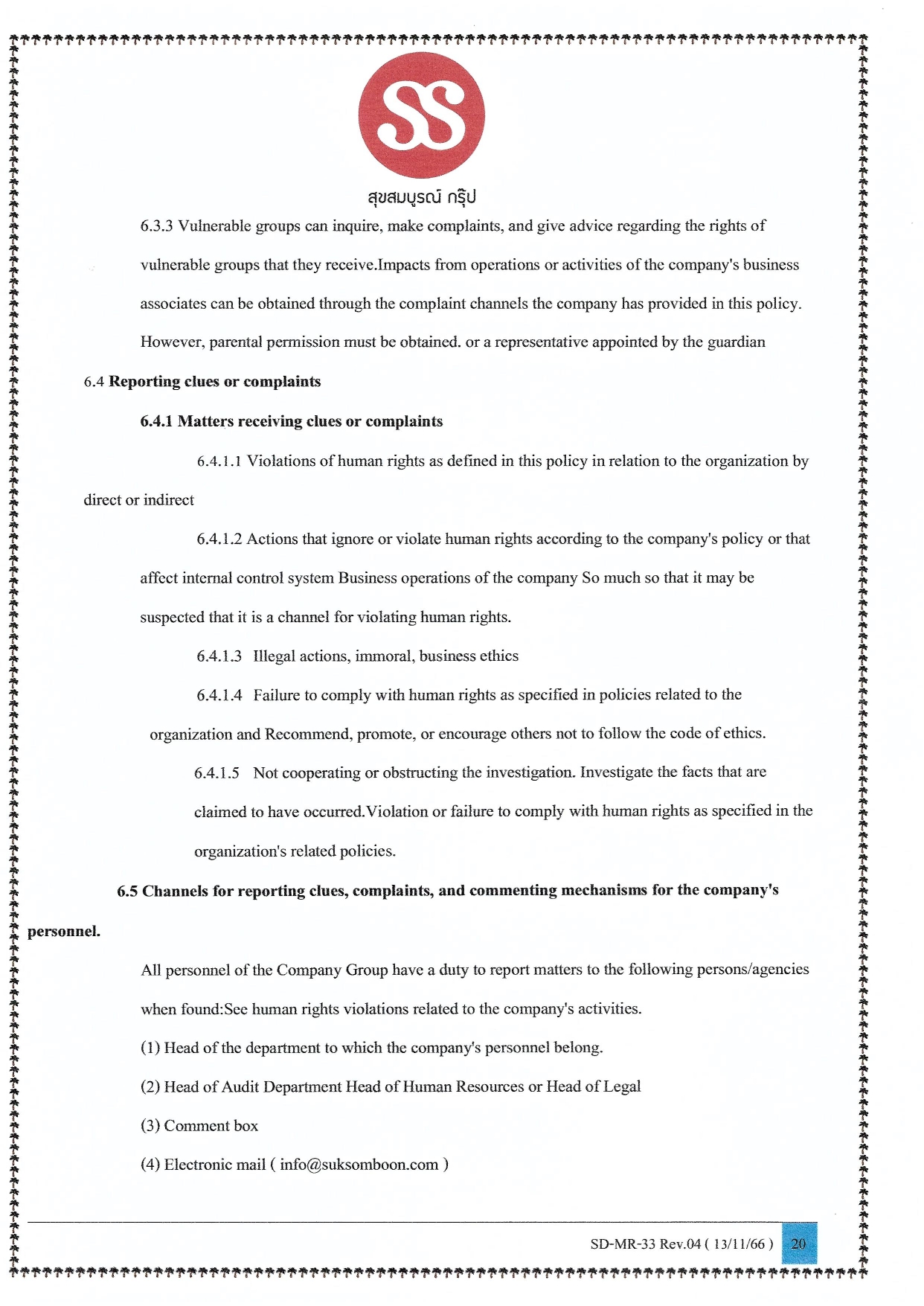
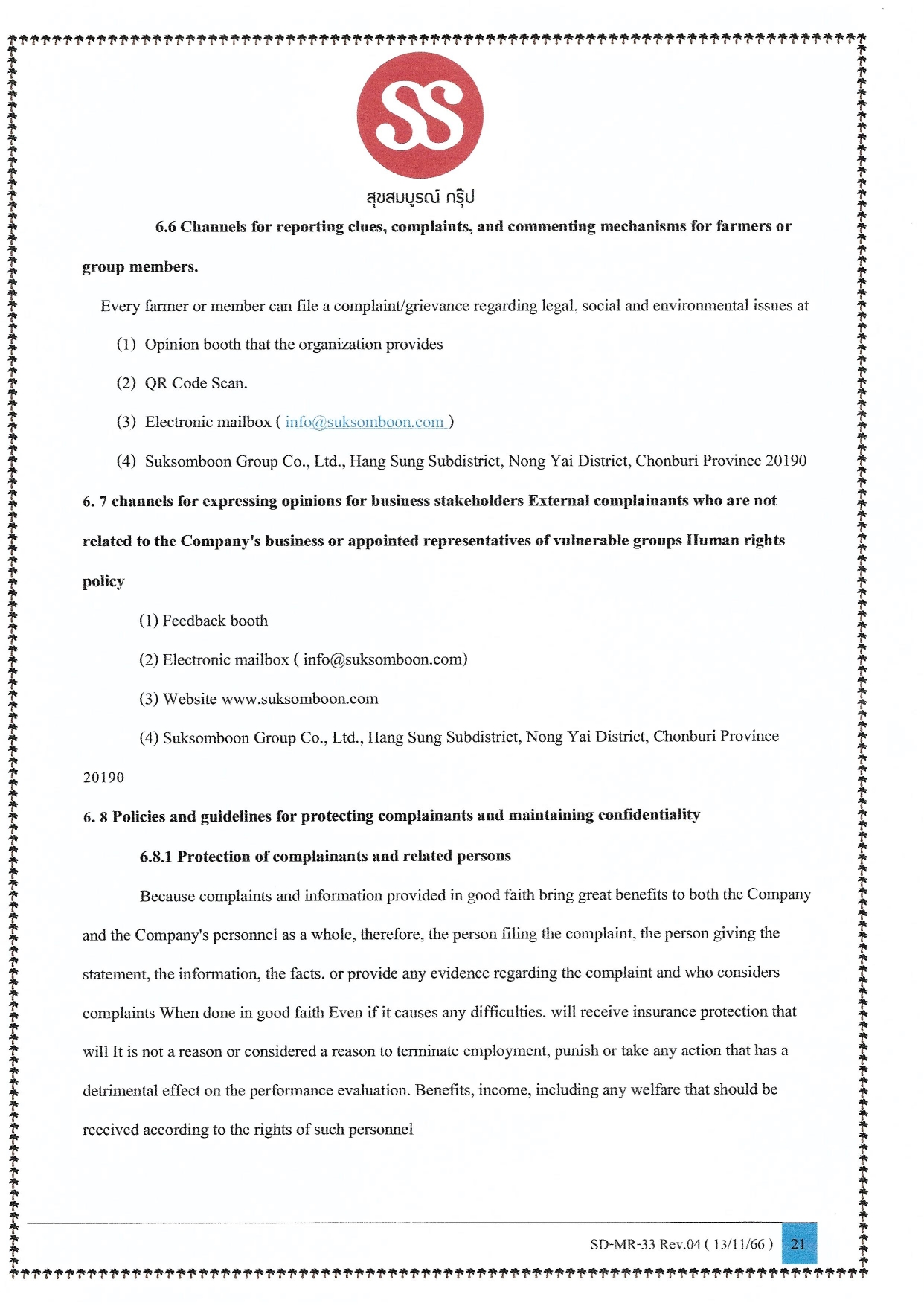
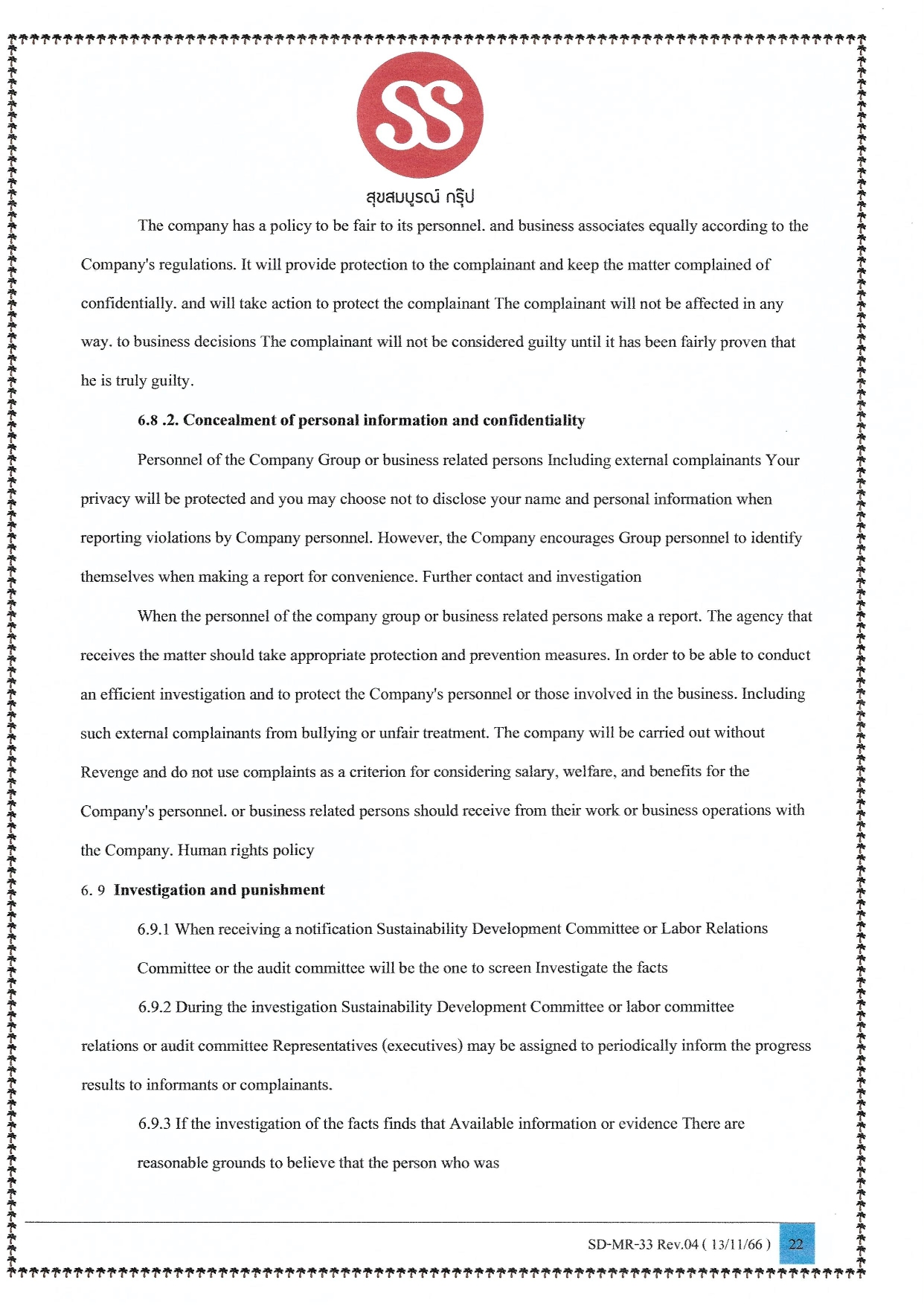
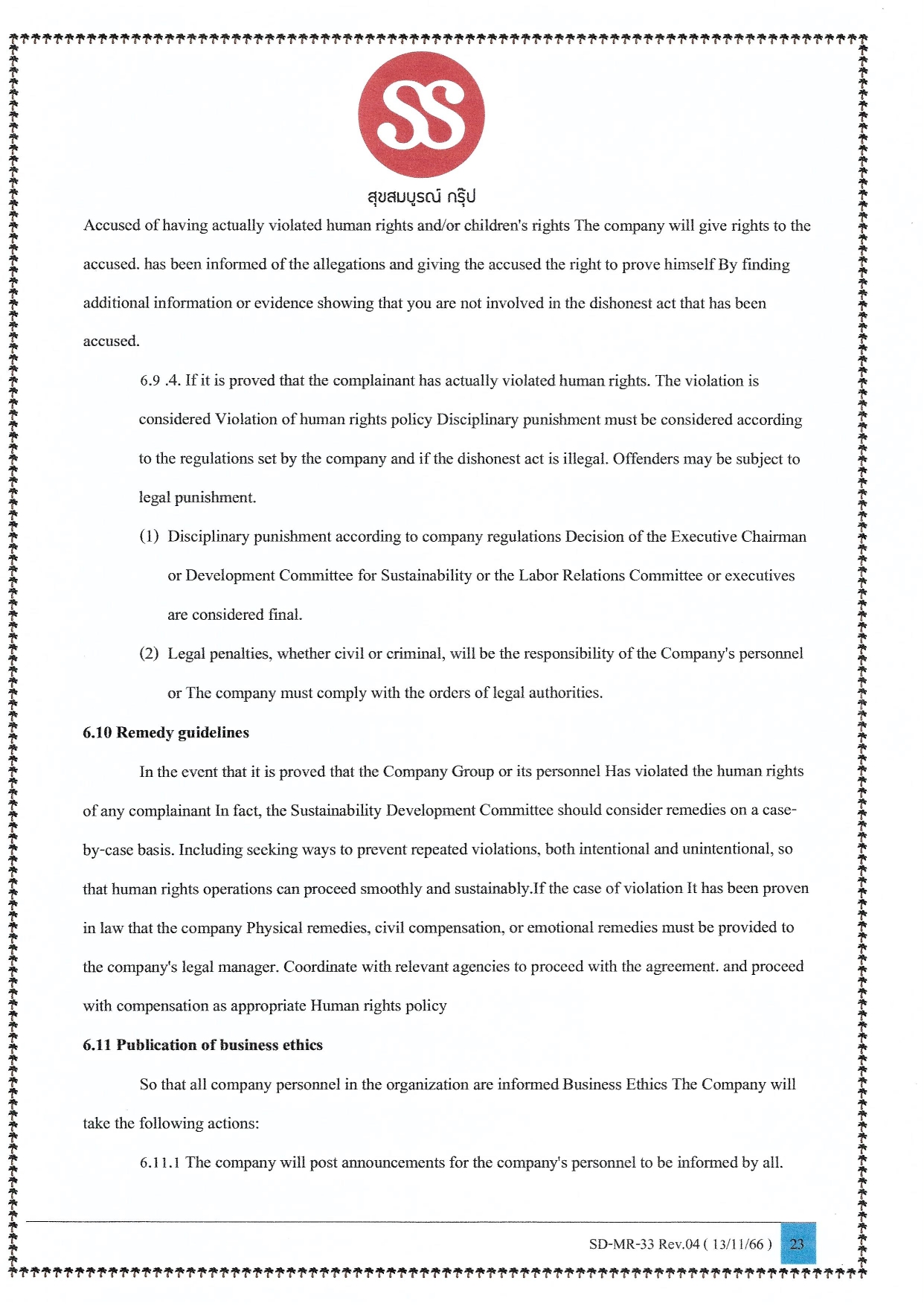
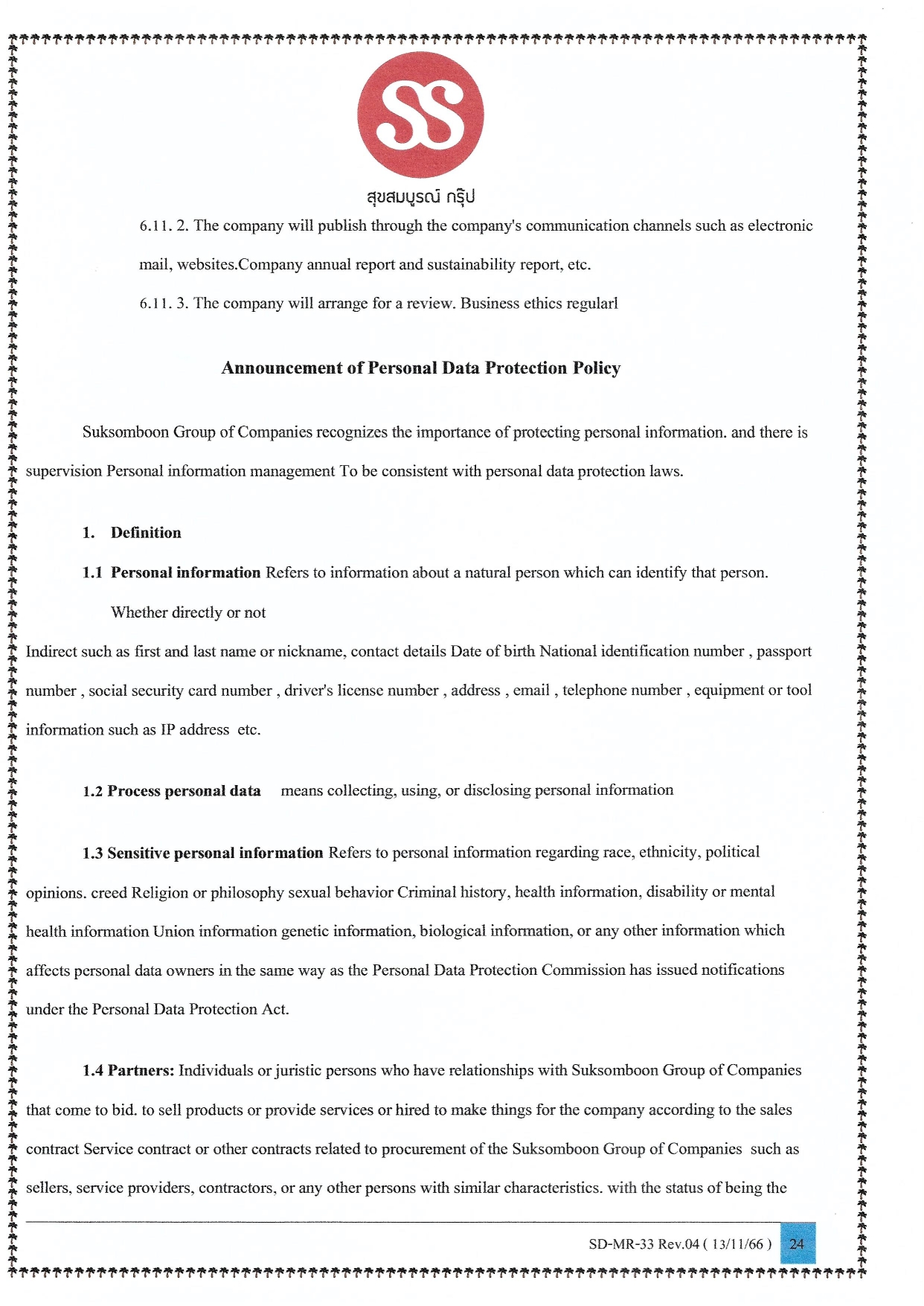
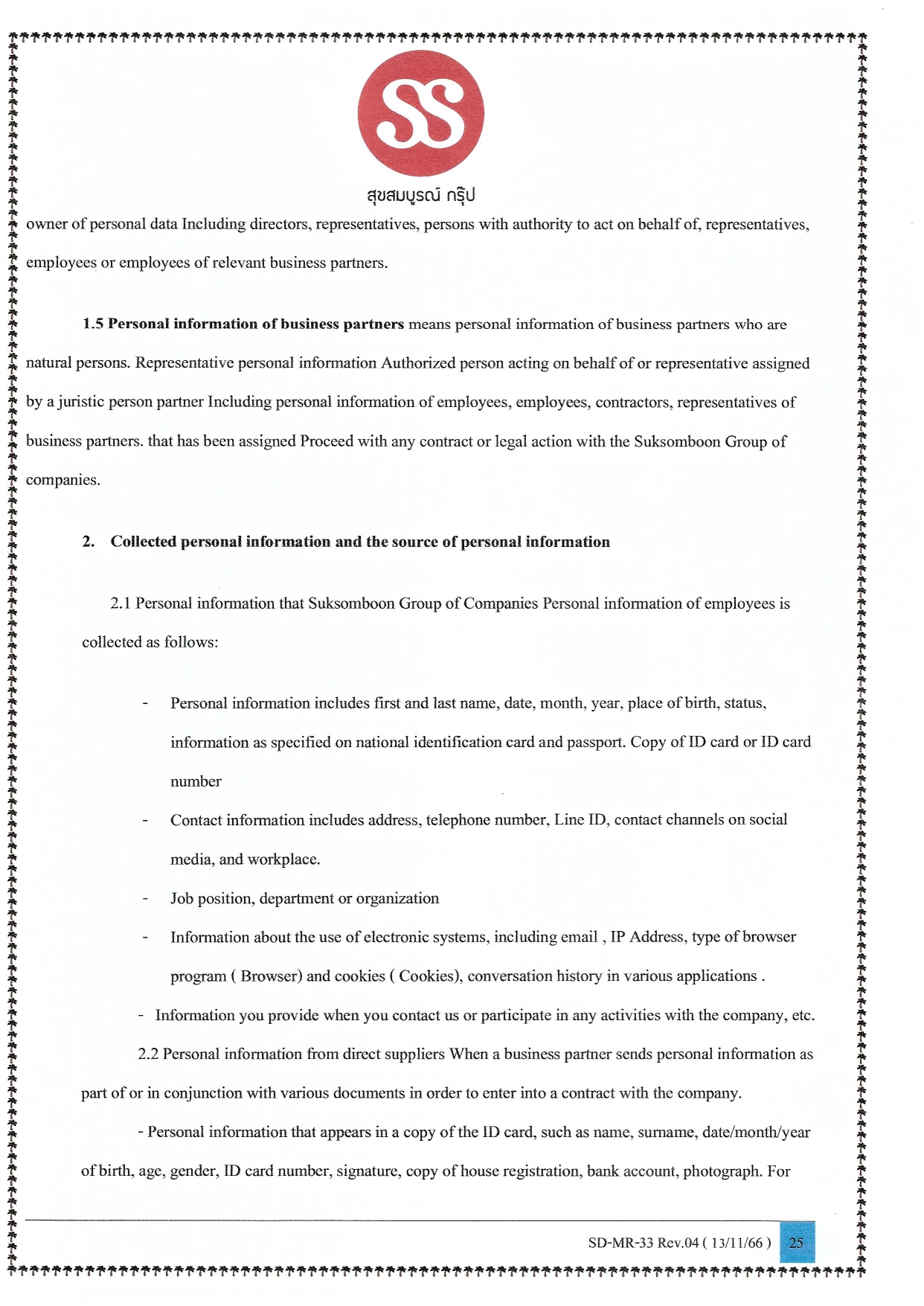
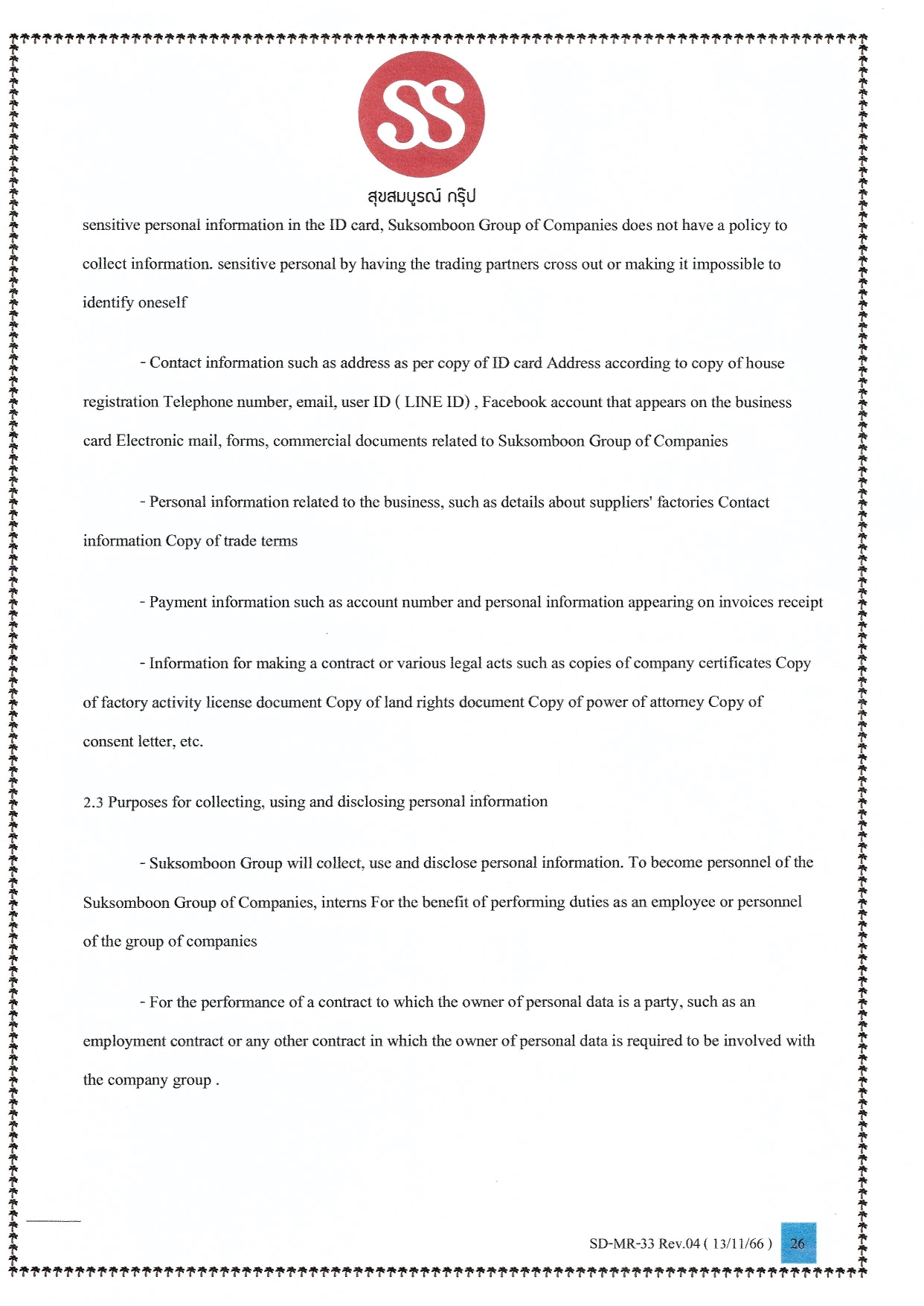
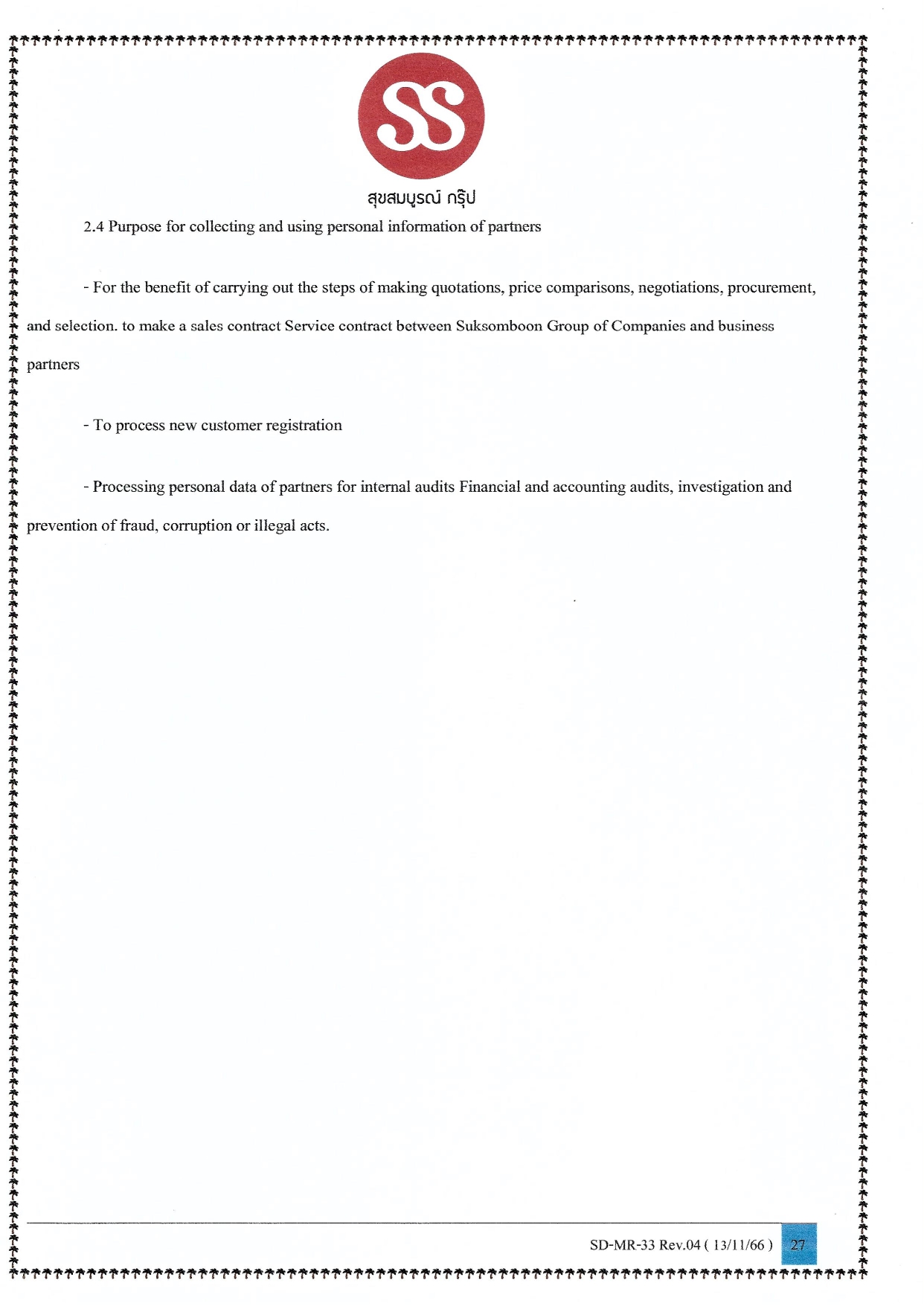
Suksomboon Group is committed to serve oil palm farmers in eastern part of Thailand as well as in neighboring areas. We commit supplying crude palm oil (CPO) and crude palm kernel oil (CPKO) from a traceable source. Including not support the area which effect from deforestation or harmful to environment.
Scope
The policy applies to oil palm farmers, crushing mills and suppliers of crude palm oil, all Suksomboon Group partner were involved in the sustainability policy. The supply chain main consider is to respect human rights in agricultural base industry.
Practical Guidelines
Suksomboon Group recognizes the importance of environmental management and forestation. To be our partner, farmer should not avoid the following action
- Not to deforest, especially forests which is a major source of carbon.
- Not to deforest, especially in the area which is high conservative value (HCVs).
- Not cultivate in land which burn by fire.
- Not expand the area to swamp forest by not adjust the depth of slope of the soil layer.
- Reduce the emission of greenhouse gases.
- Do not force labor or exploit labor or cause of negative impact to community.
- Can trace the source of raw materials.
Company expectations from farmer?s partner who join Suksomboon Group are as follows:
- High Conservation values Area
Do not destroy high conservative values forest (HCVs).
- Assess geographic areas and ecology as well as cultural values that should be preserved from the stakeholders and expert in the area, also follow up and evaluate.
- New cultivation area should follow RSPO principle to assess HCVs before plant.
- Key areas for carbon storage
Not to destroy forest which has high carbon stock approach. (HCS)
- HCS is a tool for determining carbon capture and storage, ecological and cultural values to find integrated area management method.
- New area prepare to sale must be assessed for HCS prior to the opening of the planting area.
- The peat swamp
Not to invade the peat swamp. And do not adjust the depth level for new plantation areas, Good management practices should be applied to old palm plantation in the swamp forest.
- Swamp forests are rich in organic matter up to 65% and flooded areas are all time flooded. Peatland soil was pile up for thousand years. It has a stock of carbon, water and a major habitat for many rare species. Digging out of the peat make a peat fragile and easily damaged and collapsed. Cause to a very high risk of flooding for long-term
- No new open area in the swamp for cultivation. Palms in the original swamp forests will need to be managed in a way that minimizes impact.
- Do not use fire to prepare area for planting.
- Burning is a method to prepare cultivation area in tropical countries. Cause of pollution in every year and every growing season of Southeast Asia.
- The drainage of the swamp when burned, will burn longer, difficult to control and will release massive amounts of greenhouse gases into the atmosphere. Cause of ecological, socio-economic, political, and economic problems that the Suksomboon partners cannot use fire to burn the planting area.
- Reduce greenhouse gas emissions.
- The company will take action to reduce air pollution. The Palm Oil Mill Effluent (POME) was installed to trap methane not to enter the atmosphere.
- No forced labor Or labor exploitation.
The Company will manage labor by
- No forced no confine labor or use child labor
- Respect workers’ rights, both temporary workers and foreign workers.
- No racial discrimination in employment.
- Not oppress or discriminate against workers.
- Respect the relevant labor laws.
- Legal contracts must use language that workers can understand.
- Freedom of assembly Claims of labor rights
- Tracability of raw material sources.
The company provides information on traceability of raw materials.
- We know where palm fruit come from, who is selling it, and where does CPO, CPKO, come from and who produces it in order to know how to handle it. The CPO, CPKO sold to Suksomboon Group,
Oil Palm Farmer ——Suksomboon Group
Crushing mills (CPO), Suksomboon Group
Collecting or directing farmers or directing smallholders into sustainable production processes.
- The Company will integrate or induce smallholders into sustainable production processes based on the RSPO framework, with aim of raising awareness among small farmers in the supply chain of palm oil raw materials. To be certified. There is a ground management approach that is in line with the policy on resource acquisition.
Suksomboon Group is committed to serve oil palm farmers in eastern part of Thailand as well as in neighboring areas. We commit supplying crude palm oil (CPO) and crude palm kernel oil (CPKO) from a traceable source. Including not support the area which effect from deforestation or harmful to environment.
Scope
The policy applies to oil palm farmers, crushing mills and suppliers of crude palm oil, all Suksomboon Group partner were involved in the sustainability policy. The supply chain main consider is to respect human rights in agricultural base industry.
Practical Guidelines
Suksomboon Group recognizes the importance of environmental management and forestation. To be our partner, farmer should not avoid the following action
- Not to deforest, especially forests which is a major source of carbon.
- Not to deforest, especially in the area which is high conservative value (HCVs).
- Not cultivate in land which burn by fire.
- Not expand the area to swamp forest by not adjust the depth of slope of the soil layer.
- Reduce the emission of greenhouse gases.
- Do not force labor or exploit labor or cause of negative impact to community.
- Can trace the source of raw materials.
Company expectations from farmer?s partner who join Suksomboon Group are as follows:
- High Conservation values Area
Do not destroy high conservative values forest (HCVs).
- Assess geographic areas and ecology as well as cultural values that should be preserved from the stakeholders and expert in the area, also follow up and evaluate.
- New cultivation area should follow RSPO principle to assess HCVs before plant.
- Key areas for carbon storage
Not to destroy forest which has high carbon stock approach. (HCS)
- HCS is a tool for determining carbon capture and storage, ecological and cultural values to find integrated area management method.
- New area prepare to sale must be assessed for HCS prior to the opening of the planting area.
- The peat swamp
Not to invade the peat swamp. And do not adjust the depth level for new plantation areas, Good management practices should be applied to old palm plantation in the swamp forest.
- Swamp forests are rich in organic matter up to 65% and flooded areas are all time flooded. Peatland soil was pile up for thousand years. It has a stock of carbon, water and a major habitat for many rare species. Digging out of the peat make a peat fragile and easily damaged and collapsed. Cause to a very high risk of flooding for long-term
- No new open area in the swamp for cultivation. Palms in the original swamp forests will need to be managed in a way that minimizes impact.
- Do not use fire to prepare area for planting.
- Burning is a method to prepare cultivation area in tropical countries. Cause of pollution in every year and every growing season of Southeast Asia.
- The drainage of the swamp when burned, will burn longer, difficult to control and will release massive amounts of greenhouse gases into the atmosphere. Cause of ecological, socio-economic, political, and economic problems that the Suksomboon partners cannot use fire to burn the planting area.
- Reduce greenhouse gas emissions.
- The company will take action to reduce air pollution. The Palm Oil Mill Effluent (POME) was installed to trap methane not to enter the atmosphere.
- No forced labor Or labor exploitation.
The Company will manage labor by
- No forced no confine labor or use child labor
- Respect workers’ rights, both temporary workers and foreign workers.
- No racial discrimination in employment.
- Not oppress or discriminate against workers.
- Respect the relevant labor laws.
- Legal contracts must use language that workers can understand.
- Freedom of assembly Claims of labor rights
- Tracability of raw material sources.
The company provides information on traceability of raw materials.
- We know where palm fruit come from, who is selling it, and where does CPO, CPKO, come from and who produces it in order to know how to handle it. The CPO, CPKO sold to Suksomboon Group,
Oil Palm Farmer ——Suksomboon Group
Crushing mills (CPO), Suksomboon Group
Collecting or directing farmers or directing smallholders into sustainable production processes.
- The Company will integrate or induce smallholders into sustainable production processes based on the RSPO framework, with aim of raising awareness among small farmers in the supply chain of palm oil raw materials. To be certified. There is a ground management approach that is in line with the policy on resource acquisition.
Environmental Policy
Suksomboon Group is a large scale palm oil producer who is committed to bringing environmental sustainability management into each and every process and operations, aiming to effectively improve and engage as follows:
Conduct its manufacturing in accordance to the environmental laws and regulations as its basic principle.
Foster and support its employee to be environmentally and safety conscious in their operations by providing communication and training.
Utilize manufacturing technology, resource and energy effectively and efficiently to maximize its product quantity and quality with zero environmental effects or the very least.
Continually achieving environmental development by setting and revising its framework to succeed its goals and objectives with optimization and efficiency.
Committed to reducing waste with the application of 3Rs principle : Reduce, Reuse, and Recycle.
Sustain the environment with the aim of preventing pollution effects and solving problems at the root causes. Our company policy is to be disclosed to the public as a mutual benefit to environmental sustainability management.

